

Tao Te Ching
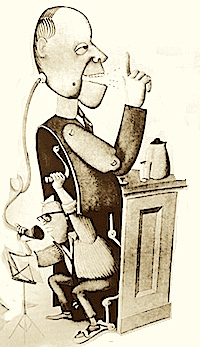
Marshall McLuhan
Politicians Lineage
Some theories of philosophy describe all of history as a struggle between the rich and the poor, the haves and the have not's, the powerful and the enslaved. Will Durrant describes how during all periods, in all major civilizations in all parts of the world this gap gradually increases until there is either a legislative or a violent revolution. Though often governmental figures are corrupted into protecting the rich against the poor (as in the USA today), their main function is to balance the inevitable income and power disparities and prevent suffering and violence that naturally arises with situations like we have today and eight men own as much wealth as the 3.6 billion poorest half of the worlds population. The people on this list represent the possibilities and experiences of enlightened leadership that puts the good of the country above personal ambition and gain.
People (137)

Nüwa 女媧
c. 3500 BCE
Symbol for all the wise and influential women of ancient times
The first Chinese heroine and credited with saving mankind during a time of great catastrophe, Nüwa’s story goes back to the era when China was a matriarchal society. Though probably not an historical figure, we include her here as a representative of the feminine wisdom lineage. Because “history is written by the victors” and men have written most of history, it’s hard to find ancient female wisdom holders. Nüwa symbolizes all the wise and influential women of olden times.
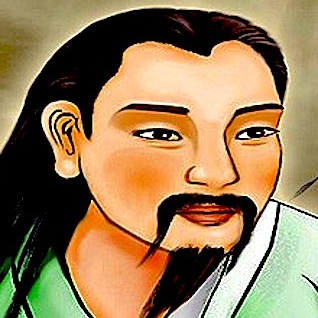
Fu Xi 伏羲
c. 2852–2737 BCE
Emperor/shaman progenitor of civilization symbol
Considered the most important primogenitor of Chinese civilization, Fu Xi reigned after his sister/wife Nü Wa during the transition from matriarchal to patriarchal society when people first learned of the link between sex and children. Credited with inventing the I Ching hexagrams, hunting, fishing, cooking, the calendar, marriage, the original 100 Chinese surnames, and a system for writing characters; Fu Xi was an emperor/shaman who could tame wild animals as well as the wild, primitive humans of the time establishing the union of opposites and cosmic harmony.

Huangdi 國語 (The Yellow Emperor)
2698 – 2598 BCE
Taoist patron saint, founder of Chinese civilization
Considered the initiator of Chinese civilization, ancestor of all Han Chinese and patron saint of Taoism, Huangdi is also credited with first establishing a centralized state, inventing the wheel, the magnet, wooden houses, carts, boats, the bow and arrow, astronomy, the calendar, coined money, weaving silk, dying clothes and the first Chinese character writing system. Parts of Lao Tzu’s chapter 6 may have been quoting him. Dreaming of an ideal kingdom, he successfully devoted his reign to establishing a golden age based on wisdom, natural law, and the power of goodness.

Leizu 嫘祖 (Léi Zǔ or Xi Lingshi)
27th century BCE
Legendary Chinese empress, inventor of silk
A legendary Chinese empress and wife of the Yellow Emperor, Huangdi, Leizu is credited with discovering silkworms when she was having tea and a cocoon fell into her tea. She then learned how to make silk, invented the silk loom, and taught women how to breed silkworms and weave silk fabrics. She was instrumental in helping her husband establish one of the world’s greatest golden ages. China maintained a monopoly on silk production for thousands years and it only spread to Japan c. 300 CE, to the Byzantine empire in 522 CE, and not to Western Europe until the 16th century.
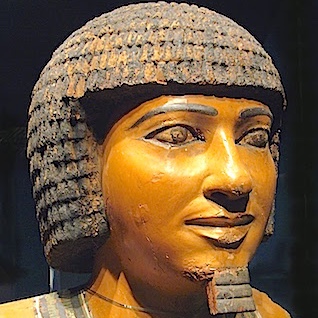
Imhotep
2650 – 2600 BCE
First Western architect, engineer and physician
Considered the first architect, engineer and physician of early Western history, Imhotep invented tools, made great sculptures, and built the first Egyptian pyramids. High Priest, Chancellor, Chief Doctor and Carpenter; he was also revered as a poet and philosopher and was one of the few figures in history born a commoner and deified after his death. "Father of Medicine,” formulator of wise sayings, patron saint of scribes; his legacy and influence helped form the beginnings of ancient Greek culture. His fame continues in modern times disguised in movies, TV shows, comics and video games.
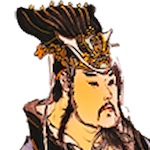
Emperor Shun 帝舜 (Dìshùn)
2294 – 2184 BCE
The highest model of a good ruler
Famous as a compassionate, natural ruler who inspired the best from people without coercion or force, Chinese culture credits Shun with establishing the Xia dynasty, numerous social and technological advancements and creating a golden age of prosperity and peace. Confucius presented him as the highest model of a good ruler always putting the good of the people above personal gain. Although receiving great wealth, power and fame, he remained humble and lived simply with deep integrity.
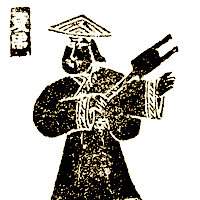
Yu the Great 大禹
c. 2200–2100 BCE
Leader of the Five Water Immortals
Philosopher-king, prototype ruler of ancient China, Taoist water deity, and leader of the Five Water Immortals; Yu became famous for introducing flood control, establishing dynastic rule, and for his impeccable integrity. One of the few Chinese rulers to be given “The Great” title, he is often seen in statues carrying an ancient hoe. Imperial emperors including Qin Shi Huang often traveled to his shrine to perform rituals.
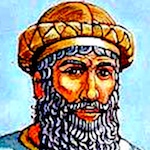
Hammurabi
c. 1810 - 1750 BCE
Father to his people and example of good government to us all
In a primitive time and place of barbaric chaos, Hammurabi not only established order, prosperity, and fairness for his own country but set an example and structure for governments of his time, throughout history and all the way to modern times. He used wisdom and irrigation to make Babylon one of the richest cities history had known and then used his power to become “a real father to his people” giving them justice, infrastructure, a higher culture, and a legal system that prevented abuse of power, oppression of the weak by the strong, marital tyranny, protection of orphans and widows, and laws we still use today like “innocent until proven guilty.”
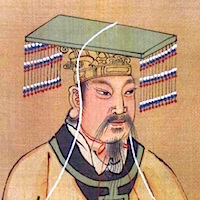
Cheng Tang 成湯 (Tang of Shang)
1675 – 1646 BCE
Tang Dynasty founder and example of just leadership
Founder and first king of the Tang Dynasty, Cheng Tang lowered taxes, decreased the military conscription rate, and after a long drought when parents had to sell their children, he distributed special gold coins to poor families so they could buy their children back. Claiming the Mandate of Heaven because of King Jie’s depravity, he overthrew the Xia Dynasty and united over 40 smaller kingdoms which almost doubled Chinese territory.
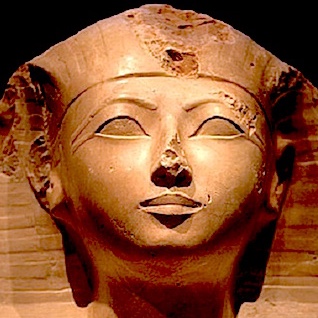
Hatshepsut (Hatasu)
1507 – 1458 BCE
"The Queen Elizabeth of Egyptian History"
Called by historians "the first great woman in history” and “one of the most powerful women in the history of the world,” Hatshepsut was also one of the most successful and compassionate pharaohs and set the stage for the zenith, the most golden age of Egyptian culture. Credited with the first transplanting of foreign trees, the first use of resin (making a kohl eyeliner), and one of the most prolific builders; she made the tallest surviving ancient obelisk on Earth, buildings not rivaled for a thousand years, and so many statues that almost every major museum in the world includes them.
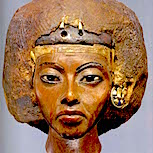
Queen Tiye
1398 – 1338 BCE
First proponent of monotheism
Royal Wife of pharaoh Amenhotep III, mother of Akhenaten, and grandmother of Tutankhamun; little known Queen Tiye changed history by proclaiming for the first time a single god and inspiring the monotheism of Moses. A foreign-born, legendary beauty of black descent with a powerful, wise personality; she was worshipped as a goddess and helped rule Egypt for 37 years bringing her country to it’s highest point of international power and prosperity while creating a revolution and peak in Egyptian art.
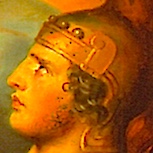
Aeneas
12th C. BCE
Personification of the hero myth
Hero of fallen Troy, first Roman hero, ancestor of legendary founders of Rome, Romulus and Remus, described as a progenitor of Julius and Augustus Caesar, claimed as an ancestor of the British Kings including King Arthur, symbol of piety, loyalty and family values; Aeneas has a long story in myth, legend, and possibly history. Immortalized by Homer, Virgil, literature from ancient to modern times, famous operas, film and video games; he is used as an example of individuation and the hero myth in Jungian psychology.
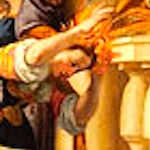
Lavinia
12th C. BCE
Prophetess and co-foundrer of the Roman Empire
Probably a legendary figure but “where there’s smoke, there’s fire” and Lavinia’s symbolic meaningfulness rates her place here. Co-foundress of the Roman Empire, prophetess, daughter of a king, wife of Aeneas, made famous by Virgil, Dante and Ursula Le Guin; Lavinia helped continue the Trojan traditions and ruled “behind the throne” for her too-young-to rule son with Aeneas, Ascanius whose progeny Romulus and Remus established Rome. She represents convergence and appreciating diversity rather than allegiance to narrow sectarianism. The symbol of her hair catching on fire foreshadows both the brilliance and violence of the Roman empire.
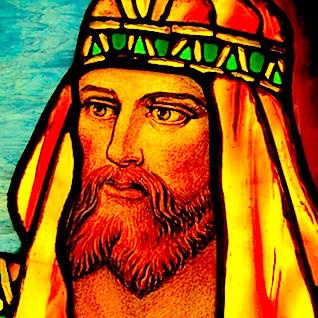
Solomon (Jedidiah)
990 – 931 BCE
Magician, exorcist, great prophet of Judaism and Islam
Wealthy and wise king of Israel, son of David, builder of the First Temple in Jerusalem; Solomon – known as a great prophet in both Judaism and Islam, a "Righteous Prophet and King" in the Eastern Orthodox Church, and a great hero in Freemasonry – is not without his detractors for following foreign traditions and marrying foreign wives including a Pharaoh's daughter and Naamah, the only foreigner Queens Mother of Israel or Judah. His openness, wisdom and refusal to fixate on dogmatic orthodoxy invites him to this list. His renown as magician and exorcist include famous legends like the One Thousand and One Nights’ genie sealed in a bottle with his Seal.
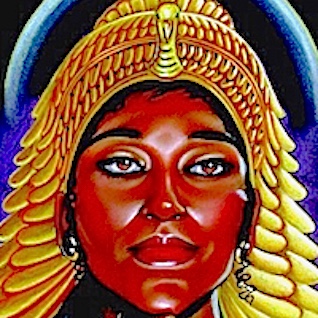
Makeda, Queen of Sheba (Bilkis, Rainha de Sabá)
10th C. BCE
Embodiment of Divine Wisdom
Viewed as the embodiment of Divine Wisdom in the Kabbalistic and mystical Christian traditions, immortalized in the Hebrew Bible and the Muslim Koran, in Persia considered a daughter of a Chinese king and a fairy spirit, part of the founding myths for the modern states of Israel and Ethiopia; Makeda is the first person referred to as Queen in the Bible and ruled over Upper Egypt, Ethiopia, and parts of Arabia. Extremely wealthy and known as a wise prophetess, she challenged Solomon’s wisdom and later had his son, Menelk who became the first emperor of Ethiopia.
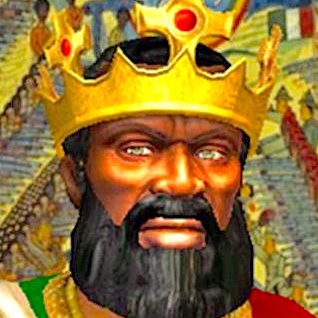
Menelik I (Ebna la-Hakim, "Son of the Wise")
c. 900-820 BCE
First Jewish Emperor of Ethiopia
According to traditional sources and memorialized in the Bible’s the Song of Songs, Menelik was the son of King Solomon of ancient Israel and Makeda, Queen of Sheba. Solomon wanted Menelik to rule Israel after him but instead (with Solomon’s blessings) he secretly brought the Ark of the Covenant (symbol of alliance between the two races, white and black) to Ethiopia where it remains today in Aksum. This made Ethiopia “God's chosen country” and established Menelik as the first Jewish Emperor of Ethiopia and founder of the Solomonic dynasty that ruled Ethiopia for almost 3000 years, includes the Magi said to have visited the manger at Jesus’s birth, and continued until the fall of Emperor Haile Selassie in 1974 when it transformed into the Rastafari movement, the Lion of Judah as symbol of black pride, and the mythology of Bob Marley.
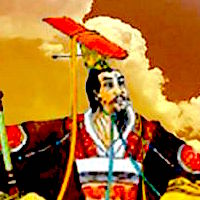
Duke Wen of Jin 晉文公; (Jìn Wén Gōng, Chong'er)
697 – 628 BCE
Innovative political reformer
A ruler during the Spring and Autumn period of ancient China who, after a 19-year period of exile declined the throne and passed it on to his half-brother; Duke Wen’s civil and military reforms created a highly successful, expanding, and stable government that lasted long beyond his life. According to Confucius, he was “crafty but not correct while Duke Huan was correct but not crafty.”
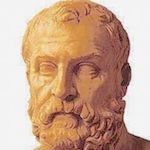
Solon
638 – 558 BCE
Founder of Athenian democracy
Poet, statesman, lawmaker, one of the Seven Sages of Greece and known for establishing the foundations of Athenian democracy; Solon wrote poetry and helped stop the decline in ancient Athens. At that time, not being able to repay a debt meant slavery - first of your children, then your wife, and finally yourself. As much as 92% of all Athenians were slaves. A skilled compromise negotiator, and respected for his wisdom and fairness, Solon was given power to change this. Establishing publicly funded brothels "democratize" the availability of sexual pleasure, he cancelled debts and contracts, freed slaves, and ended the causal system. This along with his beneficial trade legislation and standards resulted in an economic revival, a new golden age, and the beginning of democracy.
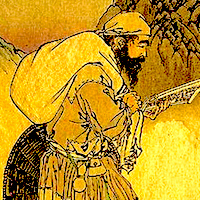
Duanmu Ci 端木赐 (Tzu Kung, Zigong)
520 – 456 BCE
Confucius’ most important disciple
Third of the Twelve Confucian Wise Ones, successful and wealthy businessman, diplomat, and most important of Confucius’ disciples; Duanmu Ci became one of the most accomplished Confucian speakers and the one most mention in the Analects. His accomplishments however led to an arrogance that Confucius criticized along with his lack of empathy and harshness. When he claimed achieving the Confucian ideal, the Master dismissed him from his posts. Confucius later gave him the task of saving their state of Lu from the more powerful army of Qi that was preparing to attack and take over. His strategy and diplomacy saved Lu, significantly change the history of 5 states, and much of that time’s Chinese history. His memorial tablet is traditionally placed on the east side of Confucian temples.

Cincinnatus
c. 519–430 BCE
Proof that power doesn't always corrupt
Roman politician, military leader legendary for his virtue, and dictator who twice voluntarily gave up all power; Cincinnatus left working his small farm when asked by his country to help during an invasion. An inspiration for generations of Romans and leaders all over the world including George Washington; he took complete control, won a great victory; and then, returning to his farm. relinquished his absolute power. Honored through the ages as example of just leadership and selfless service, his name graces many organizations, streets, plazas and cities including the USA’s Cincinnati.
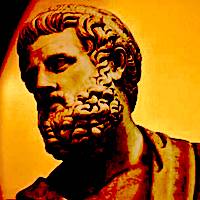
Sophocles Σοφοκλῆς
497 – 405 BCE
“The Wise and Honored One”
Author of 120 plays, known as “The Wise and Honored One,” most popular Athenian playwright for 50 years, champion wrestler, poet, musician, actor, politician, general, and priest; Sophocles initiated pioneering innovation in the presentation of drama including an emphasis on inner, psychological character development. Strikingly handsome, athletic, enriched and privileged by his family’s wealth from selling weapons during the Persian wars; Sophocles ironically developed a dark pessimistic fatalism. He ranked the unborn as the most blessed and those who die at birth next. His play, Oedipus Tyrannus became the most famous of all Greek dramas. Brought to court by a son fearful that he would bequeath his wealth to an illegitimate son from a prostitute, Sophocles defended himself by reading from a play. This not only won the case but garnered the honor of the judges escorting him home.

Pericles
495 – 429 BCE
Disprover that all power corrupts
One of the greatest statesman and leaders in all of history, Pericles disproves or is at least an exception to the adage “power corrupts.” Though not without critics (including Plato); as general, politician untainted by corruption, orator and philosopher, he helped establish a Greek golden age, increased the power of democracy, and made Athens famous as the educational and cultural center of the ancient world. He also started projects that built most of the surviving structures on the Acropolis including the Parthenon.
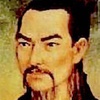
Mozi 墨子 (Mòzǐ)
470 – 391 BCE
Chinese personification of Newton, da Vinci, and Jesus
Carpenter, precursor to Newton in science, to da Vinci with inventions, to Jesus and Christianity in religion, a politician so provocative emperors burned his books and followers; Mozi taught authenticity and personal insight over dogma and obedience, "universal love,” and the "Golden Rule.” A selfless worker for the good of the others without concern for personal gain, he described inherent basic goodness, benevolence as practical and natural, adversity as beneficial, and government based on talent and merit rather than background and family. Traveling from crisis to crisis in the war-ravaged China of his time, he stopped wars and prevented battles.
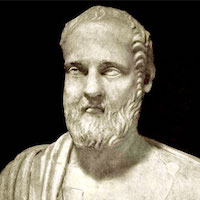
Isocrates Ἰσοκράτης
436 – 338 BCE
Greece’s most famous orator, rhetoric and philosophy school founder, teacher of kings and other teachers; Isocrates promoted a vision of all the Greek city-states being part of one common nation. This established a foundation for the Panhellenic union, the defeat of Persia, Alexander’s unification and conquests. Cicero compared the school he founded to a Trojan Horse because the ideals it promoted were so able to subtly and effectively infiltrate the culture and politics of the times. Historians attribute much of the famous integrity, honesty, and truthfulness of ancient Athens to Isocrates. A strong voice for peace, he stressed how peace doesn’t create more pain and suffering for populations while war creates so many disasters. Criticized by Plato but praised by Socrates, Isocrates became an important influence on establishing liberal arts education.

Demosthenes Δημοσθένης
384 – 322 BCE
Orphaned at the age of seven, called “blazing thunderbolt,“ read more than any other ancient orator, and one of the 10 greatest ancient Greek speakers; Cicero said Demosthenes was “the perfect orator” who “stands alone among all.” Self-taught by studying famous speeches and overcoming a serious speech problem by speaking to the sea with pebbles in his mouth; he used his prodigious skills to influence political sentiment attempting to keep Athens free and independent. His group of paid orators were considered one of the least respected professions and presaged the lawyers and professional politicians of our time. He sometimes prepared arguments for both sides in a case and became rich supporting unethical positions he didn’t believe in but wound up suffering and dying for views he was paid to defend. Though exemplifying both the best and worst of the legal profession he helped spawn, he inspired The Federalist Papers, the French Revolution orators, Henry Clay, and Friedrich Nietzsche.
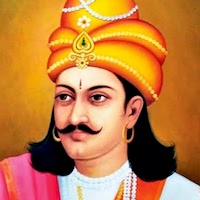
Chandragupta Maurya
340 – 297 BCE
Ashoka’s grandfather, founder of the Maurya Empire
Born poor, orphaned, and abandoned; Chandragupta became founder of the Maurya Empire, a major change agent for Indian history, and builder of one of the subcontinent’s largest empires. After reaching the heights of power, fame, and wealth; he renounced everything and became a Jain monk. He unified India after Alexander the Great left a legacy of multiple territories ruled by Indo-Greek rulers; and, Ashoka’s grandfather, he began many of the economic and political reforms Ashoka later expanded and perfected. Under his rule, trade and agriculture flourished, infrastructure like roads, mines, and irrigation expanded, the economy grew very strong, and numerous religions spread. His renown continues into modern times through books, plays, television, movies, and even an Indian Postal Service stamp.

Ashoka
304 – 232 BCE
One of the world's most enlightened leaders
One of India’s greatest emperors, after witnessing the immense bloodshed during a war Ashoka became the first Buddhist leader and sent teachers as far away as Egypt, Greece, Nepal, China, Thailand and Viet Nam. He brought about a golden age for India, renounced violence and religious intolerance, built 84,000 monasteries, hospitals for people and animals, championed the environment, human rights and gender equality. He was the first ruler in human history to ban slavery, the death penalty, animal cruelty, and deforestation. H.G. Wells wrote that his reign, “was one of the brightest interludes in the troubled history of mankind.”
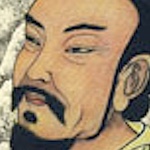
Liú Ān 劉安 (Huainanzi)
c. 179–122 BCE
Grandson of the Han Dynasty founding emperor and known as both an enlightened immortal and by his detractors as a rebel, Liu An sponsored “The Eight Immortals of Huainan” who together with him wrote the Huainanzi, a famous text that along with the works of Laozi and Zhuangzi is considered a cornerstone of Daoist philosophy. It describes how to perfect the best socio-political order and is still used as a handbook on how to train enlightened leaders. Also known as a great poet, Liu An’s fame includes being the first to record the famous Taoist Farmer Story, the first to experiment with hot air balloons as well as inventing tofu and soy milk.
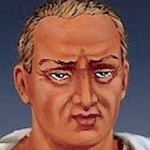
Cicero
106 – 43 BCE
One of Rome's greatest orators and writers with an immense influence on European languages greater than any other writer in history, Cicero introduced Greek philosophy and as a ground-breaking translator invented new Latin terms for philosophical concepts. His rediscovery sparked both the 14th Renaissance and the 18th century Enlightenment. Refusing an invitation for highest office from Julius Caesar, he championed democracy, fought against dictatorship and for these reasons was killed by Mark Antony. He inspired both the American and French Revolutions as well as everything from Jefferson’s writing of the Declaration of Independence to Copernicus placing the sun rather than the earth at the center of our solar system.
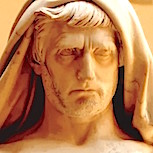
Cato (the Younger, Marcus Porcius Cato Uticensis)
95 – 46 BCE
Incorruptible politician, insightful Stoic philosopher, long-time stubborn rival and opponent to Julius Caesar’s despotism; Cato was one of the most active defenders of the Roman Republic and his suicide was considered by later Romans a great psychological and cultural victory over Caesar's tyranny. Hero in Virgil’s Aeneid, mentioned in the first paragraph of Moby Dick, immortalized through the ages in plays, novels, poetry, opera, and television; Dante described him in Purgatorio as a “saved soul” who was “worthy of so much reverence that never a son owed his father more.” Immune to bribes and corruption, he became a symbol for individual liberty over governmental tyranny; democracy over monarchy, reason over belief and superstition; Cato greatly influenced George Washington and the founding of the US government.
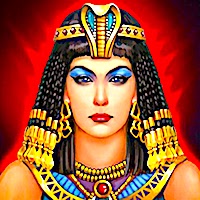
Cleopatra Κλεοπᾰ́τρᾱ Φιλοπάτωρ (Cleopatra VII Thea Philopator )
69 – 30 BCE
History’s most famous femme fatale
Egyptian pharaoh, naval commander, linguist, diplomat, medical author, and one of history’s most famous femme fatales; Cleopatra was actually known to have had only two lovers, Julius Caesar and Mark Antony. These were the two most powerful leaders of the time and consequently the two most likely to save her struggling, precarious dynasty. This strategy came close but failed and after her death, Egypt became a Roman province. Cicero knew her personally and—along with Virgil, Horace, and Ovid—described her negatively. This, at least in part, was a result of history being written by the victors and Egyptian sources like the Libyka give her more praise and respect. Even Plutarch was more positive and described her influence as based more on personality and charm more than just beauty. A descendant Ptolemy I, a Macedonian Greek general and companion of Alexander the Great, her story comes down to us today through the perspectives of luminaries including Chaucer, Shakespeare, George Bernard Shaw, Chinese scholar Yan Fu, Elizabeth Taylor, 43 movies, 200+ plays and novels, 45 operas, and 5 ballets.
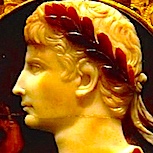
Augustus (Caesar)
63 BCE – 14 CE
Founder, first Emperor, and architect of the greatest empire of ancient history, the Pax Romana golden age, the longest period of prosperity in history, a regime that lasted almost 1500 years; Augustus became heir to Julius Caesar when 18 and leader of the western world at 31. Living simply like a philosopher instead of a king, he began with his world in corrupted chaos and established a balanced blend of order and freedom. He made good laws, helped both rich and poor, personally oversaw extensive infrastructure, 250,000 miles of roads, created police, fire-fighting, and courier services. He ruled Rome for 40 years and yet died believing he was a complete failure.
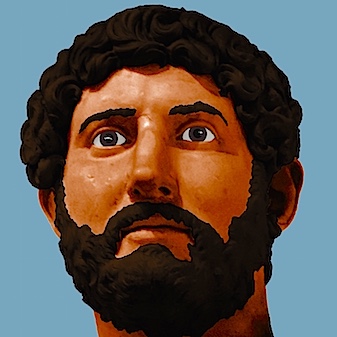
Hadrian
76 – 180 CE
Pillar of the golden age of Rome, Hadrian hated war and loved philosophy, literature, and the arts. He prevented corruption, favored the poor over the rich, and governed this empire better than any time before or since. Gibbon called this period of time “the only period in history in which the happiness of a great people was the sole object of government.” He carefully listened to complaints and suggestions later securing the reigns of his successors, Titus and Marcus Aurelius - administrations called by Will Durant “among the most beneficent in history.” He rebuilt the Pantheon in a new style copied by St. Peter’s Basilica and the U.S. Capitol in Washington, D.C.
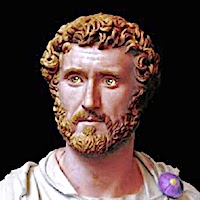
Antoninus Pius (Antonines)
86 – 161 CE
One of history's most enlightened, major political leaders
One of the best political leaders of all time, Antoninus began his reign by giving the country an immense amount of his personal fortune. Religious but free of superstition, he encouraged the tolerance of Jews, Christians, freed slaves, and other non-Roman religions. He brought Rome to its apex of prosperity and peace giving the Empire its most equitable period of all time. He liberalized the law, initiated the rights of defendants in trials still used today, told judges to treat defendants as innocent until proven guilty, enforced more equality between men and women, and never made decisions without working on consensus with the Senate. With virtually no enemies and hundreds of friends, he was immune to flattery and was so modest that it was impossible to tell he was emperor by just observing his behavior.
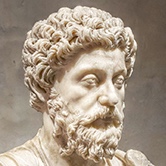
Marcus Aurelius
121 – 219 CE
One of the most important Stoic philosophers and last of the "Five Good Emperors,” during a time Gibbon described as, a period when "the Roman Empire was governed… under the guidance of wisdom and virtue.” He was known as a philosopher king and by many as the only Roman emperor who not only spoke and knew wisdom but also lived it. His book, Meditations describes setting up a just government of service and duty and was a favorite of leaders and philosophers from Frederick the Great to John Stuart Mill, from Goethe to Chinese Premier Wen Jiabao, and US president Bill Clinton.
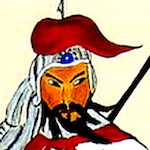
Guan Yu 关羽 (Guan Gong, Guān Yǔ)
160 – 270 CE
Considered a Bodhisattva and protector of Dharma in the Chinese Buddhist tradition, the ”Saintly Emperor Guan" and “subduer of demons” in Taoism, Guan Yu is also revered today by families, businesses, Chinese secret societies and Triads, by the criminal underworld as well as policemen. One of the best known Chinese historical figures throughout East Asia, he represents the epitome of loyalty and righteousness. Revered for his bravery and virtue, he has also become a popular figure in historical fiction, Chinese opera, movies, manga and even video games.
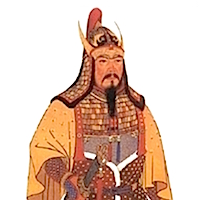
Gwanggaeto the Great 광개토태왕
374 – 413 CE
An early, conquering ruler, Gwanggaeto expanded Korea’s territory to it’s historically largest extent, established his country as one of the greatest in East Asia on equal standing with China, and began a golden age of Korean culture. His reign extended into Inner Mongolia, Western Manchuria, and the Russian seaside provinces. Considered the greatest Korean hero and today still seen as a nationalistic symbol, he established his own era name of “Eternal Rejoicing” and inaugurated a government for his son, Jangsu who ruled for 79 years, the longest reign in all of East Asian history. Debate between Korean and Japanese scholars over the meaning of a text inscribed on a 6.39 meter monument to Gwanggaeto remains in contention today.
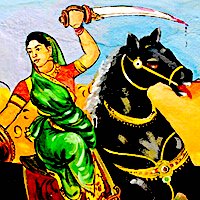
Abbakka Chowta (Rani Abbakka Chowta)
504 – 573 CE
First Indian, woman freedom fighter
“The fearless queen,” Jain sage, warrior, and “first woman freedom fighter of India;” Abhaya Rani was one of the first to resist European colonial attacks. She skillfully fought against the Dutch and British as well as preventing the Portuguese from capturing Ullal several times. Along with fellow Jains, she included Hindus and Muslims in her administration, people from all sects and castes in her armies. Betrayed by an estranged husband, she was finally captured and imprisoned; but, she didn’t give up, broke out, and died fighting. More than 500 years now after her life, she is still revered and celebrated throughout India with stamps, statues, roads, ocean vessels, and festivals named after her.
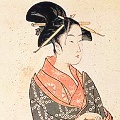
Empress Suiko 推古天皇 (Suiko-tennō)
554 – 628 CE
Emperor’s daughter, Buddhist nun, first and only confirmed Japanese Empress Regnant of Japan; Suiko’s many achievements include adopting a more useful calendar cycle, the 17-article constitution (written by Shotoku), and the official recognition of Buddhism by the issuance of the Flourishing Three Treasures Edict in 594. She was one of the first Buddhist monarchs in Japan, sponsored Buddhist temples and monasteries, and firmly established Buddhism in Japan. She orchestrated China’s first diplomatic recognition of Japan and close cultural contact with both China and Korea.
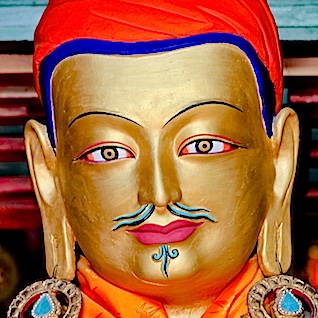
Songtsen Gampo སྲོང་བཙན་སྒམ་པོ
569 – 649 CE
Founder of the Tibetan nation, Songtsen Gampo unified Tibet, introduced Buddhism, many new cultural and technological improvements, created the Tibetan alphabet, the first constitution and model laws. After winning a war against China and influence over Nepal, he was given Nepalese and Chinese princess wives who helped him establish trade with surrounding countries and a golden age for Tibet. In Tibetan tradition, both wives are considered incarnations of Tara, the Goddess of Compassion, and Songtsen Gampo as a manifestation of the bodhisattva, Avalokiteśvara.
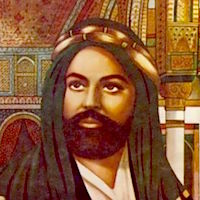
Muhammad محمد; محمد;
570 – 632 CE
Gfted political leader, sage lawmaker, just judge, sincere devotee of integrity; Muhammad was praised by Leibniz, Rousseau, Napoleon, and Thomas Carlyle but Voltaire thought of him as a symbol of fanaticism and called him "a sublime and hearty charlatan.” Although his integrity can be argued, his influence is indisputable. Founder and prophet of Islam, he launched a political and religious revolution that rapidly transformed a poverty-drenched Arabia from a desert of motley, contentious tribes into a force that within 100 years conquered half the Mediterranean world, Byzantine Asia, all of Persia and Egypt, and most of North Africa. A simple ascetic in most ways, he used eye shadow and perfume, dyed his hair, and kept an active harem. Building on the Zoroastrian, Jewish, and Christian traditions; he described elaborate visions of both heaven and hell that forged a unified, monotheistic tradition that unified the Arabs, spread throughout the world, and is still a potent influence today.

Prince Shotoku
574 – 622 CE
The son of emperor Yomei, Shotoku inspired a devotional tradition of protecting Japan, the Imperial Family, and Buddhism. His commentary on three famous Buddhist sutras in 615 CE are considered the first Japanese text. He also wrote the first Japanese constitution and is credited with creating a strong and united Japan. Still revered, his picture is on the Japanese 10,000 yen currency note.
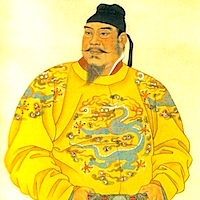
Taizong of Tang 唐太宗 唐太宗 (Li Shimin)
598 – 649 CE
One of China’s greatest emperors, co-founder of the Tang Dynasty which became the world’s most civilized power, and architect of a golden age—China’s most creative period; Taizong’s reign became the standard and measure for all future leaders. A scientific and Confucian scholar, he began by killing his brothers and expanding the empire but soon devoted himself to increasing peace and prosperity. Without personal dogma and prejudice, he welcomed Buddhist monks, Nestorian Christians, Zoroastrians, and made the capital so beautiful that it attracted hordes of tourists from as far away as India and Europe. He wrote a book reconciling Buddhism and Taoism, another one on government that became a popular reference for leaders in many different countries, promoted the arts, and it was said of people during that time, “whoever was a man, was poet.” Over 1000 years later, a Manchu emperor commissioned an anthology of Tang poems that included 48,900 poems by 2,300 poets.

Wu Zetian
624 – 705 CE
In more than 4000 years of Chinese history, Wu was the only female emperor (not just consort or dowager). Historians accused her of violent acts - murder, torture and corruption; but this may be history being re-written by the victors, later Confucian successful attempts to discredit her and the feminine equality she promoted. She made the Tao Te Ching required reading for imperial university students and continued the Tang tradition of claiming Laozi as a clan ancestor. She supported self-sufficient farmers and ensured fair land allocations. Three of her sons also became emperors and one of her grandsons became the renowned Emperor Xuanzong of Tang.

Zainab, Sayyeda Zaynab bint Ali زينب بنت علي
626 – 681 CE
Grand-daughter of the Prophet Muhammad, daughter of revered leader Ali ibn Abi Talib (regarded by Shia as the most important figure after Muhammad, by Sunnis as the greatest warrior champion of Islam, and by Sufis as the originator of their lineage; his legacy split Islam into Shia and Sunni), effective political leader, and one of the most admirable people in early Islam; Zainab - famous for her wisdom, strength and patience - is a rare instance of reverence for both Sunnis and Shi’as. Called the "Hero of Karbala,” she endured physical pain and mental torture to stand up against tyranny, speak the truth, and set Islam on a more just and compassionate course. In Iran today her birthday is known as Nurse's Day.
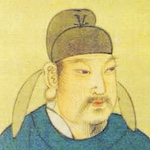
Xuanzong 武隆基 (Hsuan-Tsung or Wu Longji)
685 – 756 CE
Tang emperor famous for many things including his poetry and calligraphy as well as establishing one of China’s golden ages. He was deeply interested and influenced by both the Taoist and Buddhist traditions and his long reign of 43 years was a period of peace, political stability, and economic prosperity with many advances in education, music, painting, sculpture, and literature. He wrote a commentary on the Tao Te Ching, Yu-chu tao-te-chen-ching and had others commissioned.
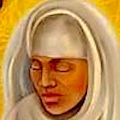
Rabia Basri رابعة العدوية القيسية (Rābi‘a al-‘Adawīyya)
714 – 801 CE
Muslim mystic, “queen of saintly women,” and most important early Sufi poet; Rabia Basri rose from the poverty and slavery of her youth to become the most famous and influential Sufi woman of Islamic history known as “the queen of saintly women.” She had many disciples and became an important influence on the leaders of her time as well as an early voice against spiritual materialism and Islamic patriarchy. She taught a doctrin of Divine Love known as Ishq-e-Haqeeqi that is still practiced today and emphasized spiritual practice without desire for reward or fear of punishment.
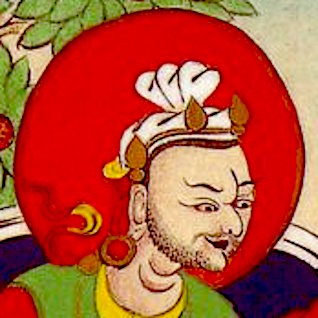
Lilapa སྒེག་པ། (“Master of Play”)
8th century CE
Mahasiddha #2
“He Who Loved the Dance of Life,” Lilapa was a king who wanted to become enlightened but didn’t want to leave the luxury and privilege of his kingdom. A wandering yogin gave him practices he could do surrounded by his riches, power, musicians, and wives. He devotedly practiced, attained realization, and became famous for his philanthropy and kind goodness. Like Epicurus in the West, Lilapa taught and exemplified how spiritual realization doesn’t depend on asceticism, rigid discipline, and self-denial but harmonizes more with appreciation, cheerfulness and respect.
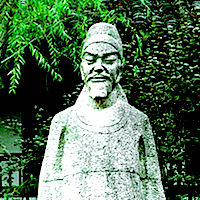
Liú Yǔxī 刘禹锡
772 – 842 CE
"Mad old man poet," politician, and philosopher
Poet, philosopher, writer; Liu Yuxi grew up in the political chaos of the time and transitioned from tutor to an heir apparent, secretary to a military governor, a high political post of Investigating Censor, to friend of many literary giants of the Tang Dynasty. He was banished, recalled, banished again because of a satirical poem, then made a provincial governor, and later governor of Suzhou. Along with famous poet/governor Bai Juyi he was known as one of the “two mad old men.” His poetry became some of the most famous throughout China, the other East Asian countries, and now—through insightful translations like Red Pine’s—in the West as well.
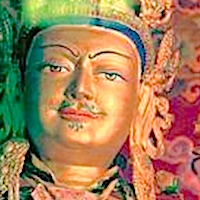
Trisong Detsän ཁྲི་སྲོང་ལྡེ་བཙན།
806 – 838 CE
Trisong Detsun, Ralpacan, Tritsuk Detsen, ཁྲི་གཙུག་ལྡེ་བཙན (806 - 838 CE)
One of the famous three “Dharma Kings” who brought Buddhism to Tibet and extended the Tibetan empire to its largest size encompassing parts of modern-day India, Nepal, Khotan, and a large territory in modern China including Sichuan, Xinjiang, and Gansu provinces; Trisong Detsun negotiated a peace treaty with the Uyguhurs in the north and with the Chinese in the east. He brought to Tibet hundreds of scholars, craftspeople, and translators who developed Tibetan literature, a Sanskrit-Tibetan dictionary, and translations of the Tripitaka, Buddhist commentaries, and ancient Tantras. He introduced weight and measurement systems from China, monastic religious organization from India, and set up a system of patronage for priests assigning support from 7 families for each Buddhist monk.
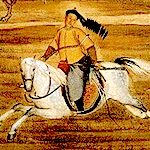
Wang Zhen
809 – 859 CE
Wang Zhen (FL. 809)
Tang Dynasty general in the tradition of Ashoka, Wang Zhen saw his military prowess and success from the higher perspective of how much unnecessary suffering it caused the population. Sickened by the consequences of his victories, he turned to the Tao Te Ching for answers and alternatives to conflict and war. This led to deep realizations, practical solutions for avoiding violence, and his commentary on Lao Tzu called The Tao of War that extended Wang Zhen’s insights on political and military struggle into the personal, competitive realms of daily life. His pacifist sympathies had greater impact because of his martial respect.
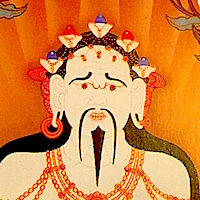
Campaka ཙ་མྤ་ཀ (“The Flower King”)
820 CE –
Mahasiddha #60
Extremely wealthy, powerful, caught up in pleasure, and sitting on a throne made from sweet-smelling flowers; Kampala met a wandering yogi. He tried to impress the sage with the splendors of his kingdom and the beauty of his flowers but the sage told him the truth, that his flowers smelled great but his body not so much, that his realm was wonderful but before long it and he would be gone. Realizing the superficiality and meaninglessness of his life, Kampala began a spiritual path but only shifted his physical materialism into spiritual materialism. Directed to focus his meditation on “the flower of pure reality,” he practiced and finally realized the empty essence of his mind. Mahasiddha #60
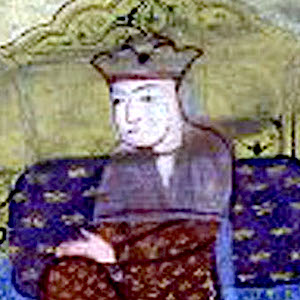
Alan Gua (Алун гуа)
832 – 884 CE
"Alun the Beautiful"
Living ten generations before Genghis Khan, Alan Gua is credited with forging the original Mongol clans together when she taught her five sons the parable of the five arrows showing them how easy it is to break one arrow but how impossible when the five are bound together. This image was powerful enough to overcome her first two son’s suspicions and jealousy when she had three more sons after their father died and explained the new births as a result of a heavenly, “glittering visitor” who came through her yurt’s roof on moonbeams “like a yellow dog.” This story/image transmitted from the Mongols to the Iroquois Confederacy through Deganawida and Hiawatha and to the US Founding Fathers becoming incorporated as the Great Seal of the United States and the same essential message into the US Constitution.
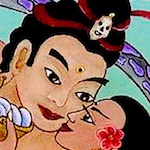
Dombipa
10th C. CE
Enlightened ruler of Magadha (Kashmir), Dombipa treated all his subjects like a “father would treat his only child” but his country suffered almost endless war, crime, famine, and poverty. He brought back prosperity, peace, and health but when he took a low caste “untouchable” as consort and started drinking large amounts of alcohol, the shocked people forced his abdication. After 12 years when the country’s problems returned, they begged him to return which he did “riding on a pregnant tiger” with his consort. To rule them again, he asked that they abandon the caste system. When they refused he went back into his meditation saying, “My only kingdom is the kingdom of truth.” This lineage continues with the Trungpa Tulkus.
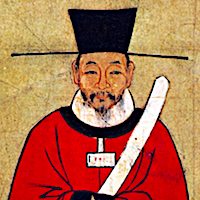
Sima Guang 司马光
1019 – 1086 CE
"Greatest of all Chinese historians”
“The greatest of all Chinese historians,” politician, scholar-official, and major cat-breeder; Sima Guang opposed Wang Anshi's reforms to help the poor against the rich but wrote a pioneering, universal history of China that influenced the world’s political evolution. Also a lexicographer, he spent decades writing his time’s most comprehensive dictionary that included 31,319 Chinese characters. His book, Family Precepts (司馬溫公家訓) became a powerful influence on both Chinese and Japanese culture. A genius with a monumental memory, Sima’s quick thinking when he was only 7 famously saved the life of his friend. He loved reading "to the point of not recognizing hunger, thirst, coldness or heat” and when involved with a complicated writing project, he slept on a wooden log so he would sleep less and be able to work more. His scholarship—far from just intellectual speculation—became a guiding force for emperors but during his life and after his death.
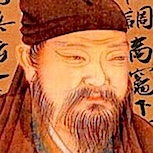
Wang Anshi 王安石
1021 – 1086 CE
Poet, economist, statesman, and one of China’s most famous prime ministers during a time of rampant nepotism and an extreme imbalance between the rich and the poor; Wang initiated major reforms to break up monopolies, expand the civil service examination system, increase currency, and begin social welfare programs to “prevent the working classes from being ground into dust by the rich.” Although removed from power and imprisoned by political rivals, his reforms still ripple through Chinese history. He started public orphanages and hospitals, set up price and wage controls, pension funds for the old, poor, and unemployed — all while writing commentaries on Lao Tzu and some of China’s most famous poems.

Gesar of Ling གེ་སར་རྒྱལ་པོ།
11th century CE
Generally considered a real person in Tibet and Mongolia, a legend like King Arthur by western scholars, Gesar represents the heroism and wisdom necessary to overcoming the negative impulses in society, culture, and government that oppress people and prevents happiness from flourishing. Called the world's last living epic, the Gesar story includes more than 120 volumes, a million verses, and 2100 hours of oral performance - the largest body of epic literature in history. The Gesar epics derives from Indian Buddhism, native Tibetan Bön, and alchemical Taoism. Like Homer’s Iliad, they include performance, poetry, philosophy, education, politics and religion.

Shen Kuo 沈括 (Mengxi)
1031 – 1095 CE
Greatest scientist of his age, statesman, inventor, poet, finance minister, horticulturalist, engineer, art critic, diplomat, military general, musician, and commentator on ancient Daoist texts; Shen Kuo discovered the magnetic compass needle and the concept of true north which revolutionized navigation 400 years before known in Europe, popularized Bi Sheng’s invention of moveable type 400 years before Gutenberg, researched and described climate change, made the first raised-relief map, described UFOs and beneficial insects, re-discovered an ancient Chinese surveying tool unknown in Europe until 1321. Politically aligned to Wang Anshi, he was impeached, exiled and spent his older years with the "nine guests" — playing music, weiqi (Go), Chan meditation, painting, tea, alchemy, poetry, conversation and wine.

Su Che 呂洞 (Su Zhe)
1039 – 1112 CE
Great writer of the Tang and Sung dynasties
Famous politician and essayist, one of "The Eight Great Men of Letters of the Tang and Song Dynasties,” exiled for his political criticisms; Su Zhe skillfully criticized social conditions in an effort to influence the emperor into creating better living situations for the common person. Champion of reforms to help the poor and protect them from the rich and powerful and also to help the rich realize that their hoarding and selfishness only made them more vulnerable to revolt, robbery, and revolution. The temple where he lived and taught is now a museum and one of China’s more famous cultural attractions.
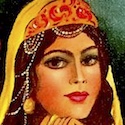
Arwa al-Sulayhi (Al-Malika al-Ḥurra)
1048 – 1138 CE
The stellar example in Muslim history of an independent queen; Arwa ruled Yemen, was the greatest leader during the Sulayhid Dynasty, and was - for the first time in the entire history of Islam - a woman given the title of hujja, the highest status in Islam. Extremely beautiful, intelligent, scholarly, brave, and powerful; she studied science, poetry, history, completed practical and beneficial infrastructure projects, supported agriculture, and built many schools. Her direct lineage continues today in both Yemen and India.

Kaṅkaṇa ཀངྐ་ཎ་པ། (“The Siddha-King”)
11th century CE
Mahasiddha #29
A prosperous king addicted to indulging his every whim and desire, Kangkana met a wandering wise man who pointed out how empty his life was - like a mouse on a treadmill chasing imaginary pleasures. Kangkana realized the truth of this but not wanting to abandon his position and kingdom to become an ascetic asked for a practice he could do while remaining a king. This practice taught him the oneness of experience and he transcended the differences between pleasure and pain, loss and gain, stress and strain. Mahasiddha #29
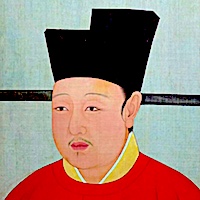
Huizong 徽宗 (Emperor Huizong of Song)
1082 – 1135 CE
Great artist, failed ruler
Polymath, poet, musician, called “one of the greatest Chinese artists of all time,” but an incompetent leader taking disastrous advice to disastrous results; Huizong demonstrated the difficulty of blending art and politics. Collecting over 6000 paintings, he sponsored artists, wrote poems, painted, reformed court music, and wrote dissertations on Taoism, tea ceremony, and medicine. His foreign policy decisions however and military neglect led to a Jurchen invasion and the ending of the Song Dynasty, his demotion to commoner status, and the last 8 years of his life spent as the “Besotted Duke" jailed in a remote, cold province prison. He promoted monumental philanthropic efforts including founding orphanages, hospitals, and schools; but, his failure to balance his religious Taoism with the Confucian mainstream prevented the maintenance of a strong government.
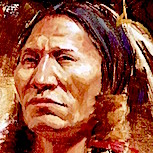
Deganawida (“The Great Peacemaker”)
12th century CE
Founder of the largest and most powerful Native American union, the Iroquois League, "The Great League of Peace" based on sharing and cooperation that established the world’s the oldest participatory democracy and brought a golden age to the native American tribes in the Great Lakes/ New York region for hundreds of years, Deganawida worked all his life bringing this vision to our world. Deeply admired by George Washington and Ben Franklin, this League was a big influence on the original thirteen colonies becoming one republic, on furthering the democratic principles included in the US Constitution, modeling and inspiring the League of Nations and now the United Nations. Identified by many members of the Bahá'í Faith with their founder Bahá'u'lláh, Deganawida continues as a voice of peace and sanity in our modern world.
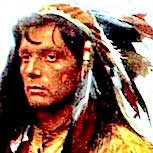
Hiawatha Haiëñ'wa'tha
12th century CE
Shaman, statement, and disciple of Huron prophet and spiritual leader, “The Great Peacemaker” Deganawida; Hiawatha used his charisma and great oratorical skills to spread his teacher’s message of peace and unity bringing together many tribes into the world’s oldest and longest lasting participatory democracy. Deganawida had deep wisdom, vision and spiritual presence but also a severe speech impediment. Like Plato for Socrates, Ashoka for the Buddha, Chuang Tzu for Lao Tzu, Mencius for Confucius, and Paul for Jesus; Hiawatha brought his teacher’s message to the greater world. Gathering the tribal leaders and agreeing on a union, they buried their weapons and on top planted the “Tree of Peace.”
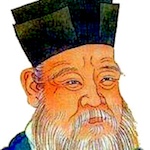
Zhu Xi 朱熹 (Zhū Xī)
1130 – 1200 CE
Called by historians the “second most influential thinker in Chinese history” and “one of the most influential people” in the last millennium, Zhu Xi blended Confucianism, Taoism, and Buddhism into a tradition called Neo-Confucianism. He synthesized ancient teachings into The Four Books which became the heart of the educational, bureaucratic, and governmental system for over 700 years in China as well as Japan, Korea and other countries. More Confucian than Buddhist or Taoist, the emphasis is on practical wisdom rather than the wisdom beyond words but still set a foundation for wise and compassionate government leading to peace and prosperity.
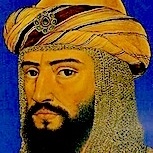
Saladin صلاح الدين يوسف بن أيوب (An-Nasir Salah ad-Din Yusuf ibn Ayyub)
1137 – 1193 CE
The most famous Kurd in history, Saladin’s Sun-Tzu-like strategy, success during the Crusades, and his conquering of Jerusalem have become a symbol for the Arabian struggle against the West. His eagle symbol was adopted by Egypt, the UAR, Iraq, Libya, Palestine, and Yemen. During times of deep European corruption and savagery, his tolerance, generosity, and justice - although not often emulated - have also become an important example for modern times. Respected as a chivalrous knight by Christian lords and European culture for hundreds of years, he dedicated himself to the happiness of people, gave away much of his personal wealth, and faithfully honored his agreements.
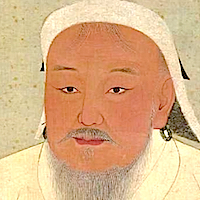
Genghis Khan
1162 – 1227 CE
Genghis Khan (c. 1162 – 1227)
Maligned by history, feared by all, conqueror of more territory, people, and countries than anyone either before or since; Genghis Khan rises high on the scale of best-known historical symbols. Although a continually creative innovator who helped establish the modern world by promoting religious tolerance, international law, and the cross-fertilizing of multi-cultural medicine, science, trade and art; most historians and stories label him as barbarian, bloodthirsty, and cruel. Perhaps it was his extreme openness and tolerance that invited this projection. Coming into Europe and many countries during times of deep corruption, intolerance, and exploitation; his openness and tolerance became the real threat, deeper than his military might. His legacy shows that the real “barbarians” were the culturally chauvinistic, narrow-religion-trapped believers, and tradition-blinded people of his and our own time.
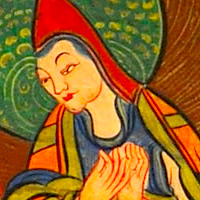
Sakya Pandita ས་སྐྱ་པཎྜ་ཏ་ཀུན་དགའ་རྒྱལ་མཚན། (Kunga Gyeltsen)
1182 – 1251 CE
Tibetan spiritual leader, scholar, doctor, scientist, poet, and politician; Sakya Pandita spent his early life as a monastic scholar and his late life applying his experience and understanding to the secular world as an advisor to the Mongol court. Born into a noble family; he began his religious studies at only 5 years old, became a monk at a very early age, and studied in Kashmir, India, and Nepal bringing an international view to his teachings. After Genghis Khan conquered Tibet in 1206, his descendants – drawn by the shamanistic similarities between the Sakya and Mongol traditions – brought Sakya Pandita into the government in an attempt to legitimize Mongol rule. At court he cured the Prince of a serious illness, was given authority over much of Tibet, and became the main agent of the Mongols in Tibetan affairs. He prevented more devastating invasions of Tibet, established an almost 100-year secular Sakya rule, and wrote some of the most influential Tibetan works of literature, many that are still part of the educational curricula today in Tibet, India, and Bhutan.
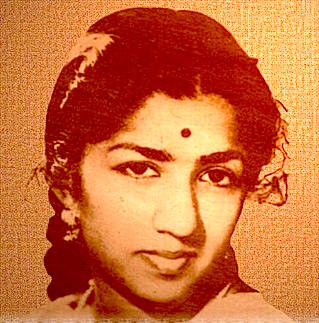
Razia Sultan Jalâlat-ud-Dîn Raziyâ (Raziya al-Din)
1205 – 1240 CE
Daughter of a Turkish slave who rose to become a sultan and the only woman to rule the Delhi Sultanate before or since; Razia devoted her rule to helping her people and established many libraries, research centers, and schools that went far beyond purely Islamic studies and included ancient philosophies, science, astronomy, and literature. Abandoning the veil, she was just, tolerant, and on religious matters emphasized the sense over the words, the spirit as more important than dogmatic belief. Her romantic love affair with Altunia is still famous and her inspiration continues in modern movies and TV shows.
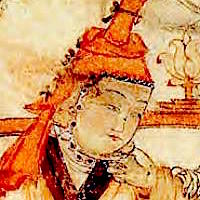
Orghina Khatun
1208 – 1261 CE
Orghina Khatun ( - 1261)
Daughter of the Oirat ruler, niece of Mongke Khan, and incorporated into Genghis Khan’s family lineage by marriage; Orghina Khatun became the first and only woman that ruled over the Chaghataid Khanate. Beautiful, wise, and pragmatic; her fortunes frequently rose and fell as she maintained her influence and power base by frequently switching sides, changing allegiances and religions as needed. She maintained supreme authority for over 15 years during a time when intense and violent struggles between leaders trying to take Genghis Khan’s place as Great Khan created one of history’s most chaotic political periods.
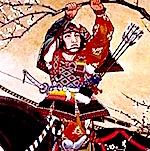
Hojo Tokimune 北条 時宗
1251 – 1284 CE
Hojo Tokimune, Hōjō 北条 時宗 (1251 – 1284)
Mainly responsible for the spread of Zen Buddhism in Japan and ruler during the time Kublai Khan was invading and trying to conquer; Hojo Tokimune as the 8th Shogun and with the help of typhoons repelled two Mongol invasions. (The second included 4,400 ships and over 140,000 troops.) He personally planned and led the defense and in the process established a new warrior class called samurai which became one of the most fierce fighting forces the world has ever known. He brought famous teachers from China, built temples, and funded the transplanting and translation of Chinese Chan Buddhism into Japanese Zen. Although dying when only 33 years old, his influence on Japanese politics and culture ran deep and still continues.
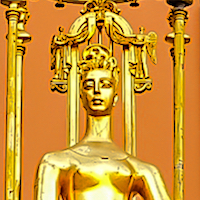
Khutulun (Turandot)
1260 – 1306 CE
Mongolian "Tiger Woman"
Daughter of Genghis Khan's cousin, Kaidu—the most powerful Central Asian ruler of the time—Khutulun became a famous warrior, wrestler, and political influence. Marco Polo described how she could ride into an enemy swarm and snatch a captive like a hawk grabbing a chicken. Beautiful, powerful, and charming; she challenged her many suitors with wrestling competitions and won thousands of horses before finally accepting one. She was chosen by her father to succeed him but the male relatives stopped the succession. She became known in the West as Turandot and memorialized by François Pétis de la Croix, Carlo Gozzi, Friedrich Schiller, Goethe, and—most famously—by Giacomo Puccini. Her renown continues today in many stories and movies, as a popular and extremely successful Australian race horse, and in the Netflix series, Marco Polo.

Ming Taizu 明太祖 (The Hongwu Emperor, Zhu Yuanzhan)
1328 – 1398 CE
One of the most influential emperors in all of Chinese history
Peasant farmer, destitute beggar at 16 when his family was killed in a flood, and Buddhist monk until his monastery was destroyed by the Mongols, Ming Taizu dramatically rose above his circumstances and led the rebellion against the Yuan and founded the Ming dynasty. As emperor he protected the poor, created irrigation systems, planted 50 million trees, and distributed land to peasants greatly increasing their standards of living. The population increased from 60 to 100 million. He studied the Tao Te Ching, based his government on Taoist principles drawing up a new legal code considered one of the greatest achievements of the age and also supported Islam. He prevented corruption and protected the weak but per historians was corrupted himself in later life.

Yung-lo 永樂 (the Yongle Emperor, Zhu Di)
1360 – 1424 CE
Son of the farmer-Buddhist monk-general who ended the Yuen dynasty and became emperor, Yung-lo was born into luxury and power. But later, in order to escape assassination attempts, had to pretend madness and become a vagrant. Transforming this disaster into opportunity, he became emperor himself. As emperor, at a time when the next largest navy in the world had 300 small ships, he built a fleet of over 3500 huge vessels that sailed all over the world and established colonies from Africa to the United States more than 70 years before Columbus. He moved his capital to Beijing, built the Forbidden City, promoted a world-wide surge in science, education, and religious tolerance and supporting Tibetan Buddhism started the Karmapa’s Black Crown Ceremony.
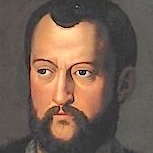
Cosimo de’ Medici
1389 – 1464 CE
Inheritor of a huge fortune; wandering bibliophile; owner of banks, businesses, farms, and factories; friend to cardinals and sultans alike; founder and “first among equals” leader of a political dynasty that helped begin and extend the Renaissance; Cosimo de’ Medici did what the rich need to do today: use their wealth to benefit the world instead of only themselves. In his own and other countries he strongly supported public works, charities, and libraries; funded the work of poets, artists, scholars and philosophers; established an academy for the study of Plato and launched the Renaissance revolution of philosophy over the Middle Ages’ scholasticism - the sense over the words.
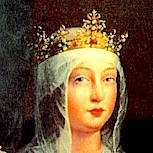
Isabella I (of Castile)
1445 – 1504 CE
Wise Renaissance queen, patron of the arts, strong centralizing leader, Christopher Columbus’ financier known for her fairness and justice, and the first woman depicted on both a US coin and US postal stamp; Isabella - after helping to reunify Spain, reorganized the government, dramatically brought down the debt and the crime rate to the lowest it had been in many years, and established Spain as the first global power dominating Europe for more than 100 years. Although she persecuted Jews and Muslims, her life was scrutinized by the Catholic Church for 500 years before being sainted in 1974 with the title, "Servant of God.”
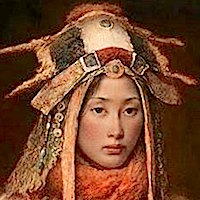
Mandukhai Khatun ндухай сэцэн хатан (Queen Mandukhai the Wise)
1449 – 1510 CE
Queen Mandukhai the Wise
Greatest Mongolian monarch in the 800 years after Genshis with enemies on every side, brilliant strategist, and wise leader; Mandukhai for the first time in over 100 years united the Mongolians under a strong central government. Recognizing Genghis Khan’s mistakes in establishing a Mongolian legacy, she set in place a stable government that lasted for generations up until World War II. After her heirless husband was poisoned by a Ming dynasty spy, Mandukhai adopted Batmonkh the recently orphaned and last living direct Genghis Khan descendent making here the leader of the civil war plagued Mongol Empire. She defeated the warring factions, married Batmonkh when he turned 19, and continued dramatic military victories over both new factions and Chinese incursion, fighting in battle even when pregnant and birthing babies. She became the reason for the largest and fastest Great Wall of China expansion. Columbus made his voyages in an attempt to find her; and, though not knowing her name, carried a letter to her from his Spanish monarch patrons. Her descendants include all of the Mongolian nobles and khans that followed after her. Inspired by and continuing her example, these descendants converted to Buddhism and in 1578 began the Dalia Lama lineage when they gave the Tibetan monk Sonam Gyatso this title, dalai (ocean—'Sea of Power') first used by Genghis Khan's son, Ogodei.
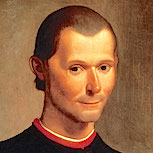
Machiavelli (Niccolò Machiavelli)
1469 – 1527 CE
Unjustly vilified by history as well as his contemporaries, Machiavelli is known as the “founder of modern political science,” a major influence on the USA’s founding fathers, and the development of modern science. Personified with unscrupulous, immoral political activity, devious deceit, realpolitik and evil tyrants; many of history’s true heroes like Spinoza, Rousseau, Francis Bacon, John Milton, Montaigne, and Descartes secretly considered him an inspiration for the Enlightenment that followed 200 years later. Rousseau thought his book The Prince - far from condoning - was not written as advice to ruler who already understood these principles but rather satirically exposed their corrupt methods to the common people. Not the source for the quote, “The end justifies the means,” Benjamin Franklin and Thomas Jefferson considered him a “partisan of liberty” and John Adams seriously studied his philosophy and used it to clarify the Constitution’s idea of mixed government.
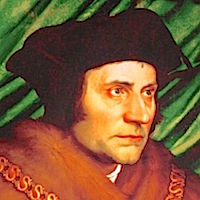
Thomas More
1478 – 1535 CE
Thomas Moore (1478 – 1535)
Christian humanist, Henry VIII confidant, ascetic, Lord High Chancellor of England, brave psychological explorer; Moore both embraced and went beyond his time and culture. On one hand opposing Martin Luther and the Protestant Reformation, he also protested against Henry VIII’s appropriation of the title, Supreme Head of the Church of England and was beheaded for his efforts. Living at a time of deep cultural transition when idle noblemen raised rents, created land enclosures, caused extreme poverty, starvation, and 72,000 English thieves were hanged; he helped revive a radical interest in Lucretius and Epicureanism. His book Utopia envisioned a society based on the pursuit of collective happiness and included universal health care, public housing, child care centers and a 6-hour work day rather than the prevalent materialism, nepotistic, personal advantage and power. G. K. Chesterton, Jonathan Swift, and many others considered him the greatest Englishman.
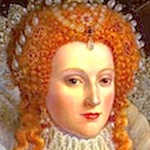
Elizabeth I (Gloriana, The Virgin Queen)
1533 – 1603 CE
Though far from a sage or saint, Elizabeth began her reign with England reviled and powerless but left it 45 years later rich and strong. Called by historians “The greatest ruler England has ever had,” she was patron to Shakespeare, Bacon, Marlowe, and Drake launching the scientific revolution and a golden age of progress and learning. Excommunicated by Pope Pius V, she believed that faith was personal, became “mother of the Church of England.” She opened up trade with the Islamic Ottoman Empire, and helped end the Vatican’s power over all Europe. Though stained by abuses in Ireland, she listened to popular sentiment and advice dedicating her life to her country and people becoming a symbol for good government and resistance to foreign threat.
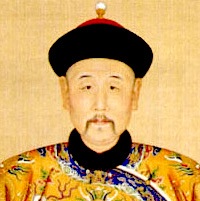
Kāngxī 康熙帝
1654 – 1722 CE
Longest-ruling Chinese emperor, consolidator of the Qing dynasty during the transition from the Ming, first Chinese emperor to play a western musical instrument, inventor of a Chinese calendar, and supporter of bringing Western technology into China; Kangxi administered the normal political and social emperor activities engaging in war, law, economics and having 56 children; but also, he thought deeply about life and realization. A skilled politician who could combine power, flexibility and tact with his Taoist/Buddhist tradition; he traveled extensively, rarely stopped talking communicating and listening to people everywhere, and brought an exceptional openness to his autobiography exposing his faults, uncertainties, and disillusionments as well as his accomplishments and insights.

Benjamin Franklin
1706 – 1790 CE
Beginning his adult life as a penniless runaway, Franklin became one of the world’s most admired people. He was a founding father, diplomat, scientist, philosopher, businessman, inventor, and the politician most responsible for winning the Revolutionary War. His inventions included the lightning rod, bifocals, the Franklin stove, and he helped start many new civic organizations including voluntary fire departments and paid police forces. He recreated the slogan/quote tradition of Aesop and Atisa that we continue in our “Comments” link.
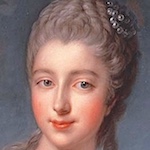
Madame de Pompadour (Jeanne Antoinette Poisson)
1721 – 1764 CE
Called by Will Durant “One of the most remarkable women in history” as “the most cultured woman of her time” and by Voltaire “one of us,” Madame de Pompadour as chief mistress of Louis XV became a brilliant governor of France, protector of Voltaire, savior of Diderot’s Encyclopedie, patron to Rousseau, Montesquieu, and the “Age of Enlightenment” in general. Excommunicated by the Catholic Church and the “Queen of Rococo,” she supported philosophy, literature, music and art as porcelains, hair styles, dresses, chairs, ribbons, beds, and dishes were named after her. Beautiful, charming, and intelligent, she led France to its highest artistic influence on European civilization as well as making her country much stronger economically and politically.

George Mason
1725 – 1792 CE
First American abolitionist, founding father, and Constitutional savior
American Founding Father, author and primary advocate for the original Bill of Rights, George Washington friend and neighbor, and “the first known abolitionist”; George Mason helped create the American political foundation. Although he wrote many of the clauses and points in the Constitution, he was one of only 3 delegates who refused to sign it because of it sanctioning slavery. Recognizing defects in the Constitution and the inevitable need to change it, he became instrumental in bringing into the constitution provisions for changing it (Amendments) and for adding new states. This made it easy to make changes without violence while creating a strong foundation for the trajectory that became a transoceanic federal republic. The primary force for including articles of impeachment into the Constitution, he wrote the phrase, “other high crimes and misdemeanors.” Because he remained a contrarian and because most of his papers were lost in fire, history doesn’t remember him well and he became "a prophet without honor in his own country.” The results of his efforts, however, brilliantly support modern political freedoms.
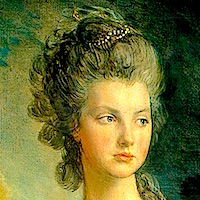
Catherine the Great Екатери́на Вели́кая (Catherine II)
1729 – 1796 CE
Russia’s longest-ruling female leader, “enlightened despot,” author, great patron of the arts, flamboyant and powerful; Catherine the Great helped create and ruled over Russia’s Golden Age revitalizing the institutions, modernizing it’s infrastructure, helping the serfs and emphasizing the arts. She shared more and more power with the nobles, tried to help the peasants, but the rapid expansion of the state relied on taking away much of their freedom and land causing their dissatisfaction and rebellions. She enthusiastically supported the The Enlightenment, helped Russia to become one of Europe’s great powers, greatly expanded colonizations that went as far as Alaska but was accused of many unjust wars. She established the first state-financed higher education institution for women in Europe and supported French philosophers like Voltaire and Diderot when his Encyclopédie was being oppressed in Europe. More licentious than most of her male counterpoints, history records 22 male lovers, many much younger, one only 22 when she was 61.
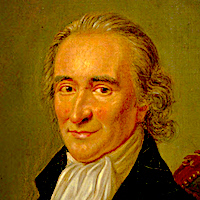
Thomas Paine
1737 – 1809 CE
Fired from his government post in England because of his efforts for the working class and running to escape debtor’s prison, Paine brought a letter of recommendation from Benjamin Franklin to the new world and quickly established himself as a voice for freedom, liberty, women’s rights, prison reform, Newtonian science, and anti-slavery efforts. From a poor family growing up during a time when thousands of small farmers were becoming serf-like factory workers and the gap between super rich and super poor was becoming extreme; he educated himself, became a Founding Father, one of the most essential influences on the Revolutionary War, gave the United States of America it’s name, and wrote the rough draft that Jefferson used to craft the Declaration of Independence. John Adams said that, “Without the pen of Paine, the sword of Washington would have been wielded in vain.” The first to lobby for a Social Security system, his influence extended from American to England, France, South America, and all countries seeking freedom, social justice, and moral equality.
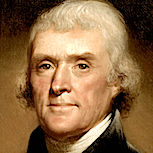
Thomas Jefferson
1743 – 1826 CE
American founding father, main author of the Declaration of Independence, Virginia governor, first Secretary of State, US Vice President and one of America’s greatest presidents; Jefferson negotiated the Louisiana Purchase almost doubling the size of the country and wrote a book considered the most important American one written before 1800. President of the American Philosophical Society, mathematician, architect/designer of the Virginia State Capitol and Monticello, University of Virginia founder, avid horticulturalist and farmer, naturalist deeply interested in birds, inventor of an important new plow design as well as the swivel chair, and speaker of more than 8 languages; he exemplified the ideal of a true Renaissance Man. Although he owned hundreds of slaves, as a young lawyer he defended freedom-seeking slaves, signed an act prohibiting their importation in 1807, and is believed to have secretly “married” and had children with a black woman, Sally Hemings. Always in debt with cash flow problems from continual experiments and pushing on the boundaries of the possible, his creative spirit never died.
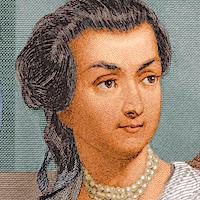
Abigail Adams
1744 – 1818 CE
One of the most exceptional women in American history
The first USA Second Lady and second First Lady, wife and advisor to president John Adams, mother of president John Quincy Adams, and one of the most exceptional women in American history; Abigail Adams became instrumental in the founding of the United States. A powerful influence for women’s rights, she emphasized the need for their education. A strong voice against slavery, she believed it was evil and a threat to democracy. Opposed to dogmatic, superstitious religious belief, she advocated for a heart-felt connection with a wisdom beyond words rather than a rote belief. Her accomplishments become more impressive when you consider the culture of her time when women’s roles were mainly domestic and educating women was considered foolish. Abigail never went to school but her self-education made her the most wise and influential in an extremely influential family.
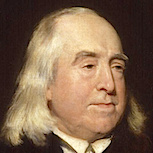
Jeremy Bentham
1748 – 1832 CE
Jeremy Bentham (1748 - 1832)
“The first patron saint of animal rights,” founder of modern utilitarianism, philosopher, and social reformer; Bentham defined “the greatest happiness of the greatest number” as a political strategy and brought the idea of welfare into modern government. A strong voice for individual and economic freedom, he worked hard to end slavery, the death penalty, physical punishment, and was the first in England to argue for decriminalizing homosexuality. He promoted equal rights for women, universal education, the separation of church and state, and animal rights. His secretary was John Stuart Mill’s father and together they tested the limits of education.
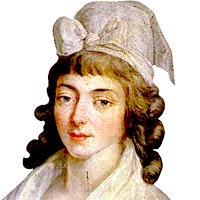
Madame Roland (Marie-Jeanne Phlippon)
1754 – 1793 CE
Revolutionary heroine
Sole survivor of her mother’s 8 pregnancies, Madame Roland became a revolutionary heroine and one of the mainspring influences of the French Revolution. A student of Plutarch, Voltaire, and Rousseau; her clear intelligence, wisdom and drive made her the equal to any of the contemporary politicians proving the capabilities of women in the political realm. Her drive, focus, and radiant intelligence made her the equal in accomplishments of any contemporary male politician. Sacrificing her life for her political beliefs, she died by guillotine during the French Reign of Terror with the famous words, “Oh Liberty, what crimes are committed in thy name!”. Her memoirs written in prison became a testament to the possibility of balancing freedom and equality as well as evolving potentials for a woman’s place politics.
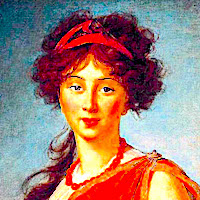
Madame de Staël (Anne Louise Germaine de Staël-Holstein)
1766 – 1817 CE
"The greatest woman of her time"
Powerful political advocate, “first woman of Europe,” fascinating conversationalist, "Napoleon's Nemesis," and preeminent authoress of the time; Madame de Staël inspired and encouraged the political opposition to the Reign of Terror and later to Napoleon and was banished for her efforts. A potent influence on European Romanticism and persuasive advocated of liberty, she sponsored and led salons, wrote novels, and important speeches. Praised by Tolstoy, her political influence advanced representative government, constitutionalism, and women’s rights. Her opposition to dictatorship brought her into intense conflict with Napoleon and she was considered—along with England and Russia—one of the 3 main forces against him. Struggling with opium addiction and suicidal depression, a close friendship with Juliette Récamier enabled her to continue and become—in Macaulay’s phrase—“the greatest woman of her time.”
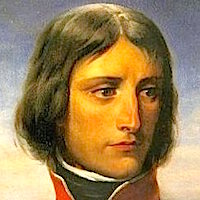
Napoleon Bonaparte
1769 – 1821 CE
Napoleon Bonaparte (1769 – 1821)
Called by historians everything from a megalomaniac worse than Hitler to an enlightened monarch responsible for creating some of the best political and legal systems in the modern world; Napoleon became a French general when only 24, a national hero at 26, and – attributing his success to meditation - one of the most successful commanders in all of history. Father of the European common market, his Napoleonic Code became a foundation for legal systems used today by 1/4 of the world's population, 70+ countries in Europe, the Americas and Africa. Inspired by the liberal vision of the French Revolution, he helped end feudalism, encouraged science and the arts, institutionalized equality before the law, property and religious rights, meritocracy, and our modern educational system. Excommunicated by the Catholic Church, he abolished the Spanish Inquisition and emancipated from ghettos Jews and Protestants in Catholic countries, Catholics and Jews in Protestant countries.
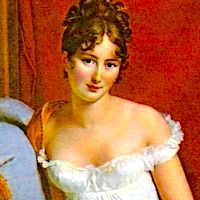
Juliette Récamier (Jeanne-Françoise Julie Adélaïde Récamier)
1777 – 1849 CE
Prototype of beauty, grace, charm, and loyal integrity
Icon of neoclassicism, prototype of beauty and grace who with “a sensuous pliancy stirred a hundred males without any known harm to her virginity,” lover of literature, patron of artists and intellectuals; Juliette led an interesting life that purportedly included marrying her father when she was 15, being exiled from Paris by Napoleon for her liberal views, losing a great fortune but remaining dignified and influential, and turning down a marriage proposal from a Prussian Prince who she deeply loved. Sex is a kind of currency that women have used throughout the ages to get what they want—food, affection, wealth, power, fame, security. Unlike money though that grows with time and interest, this particular kind of currency normally diminishes with age. Juliette however, became so adept at using this natural resource that it continued working for her in spite of old age and even blindness.
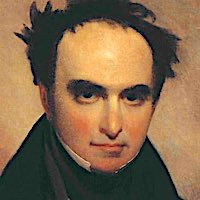
Daniel Webster
1782 – 1852 CE
America's greatest orator
Two-time US Secretary of State and presidential candidate, leading Supreme Court attorney, and Senator; Daniel Webster was named as one of the five greatest senators in history, gave "the most eloquent speech ever delivered in Congress,” and his style—for at least 75 years—became the main exercise for students of oratory. A key supporter of President John Quincy Adams and leading opponent of Andrew Jackson, historians consider him instrumental in maintaining United States union over the Southern efforts of creating a states-rights Confederacy. In John F. Kennedy’s book Profiles in Courage, he described one of his positions risking denunciations and his presidential ambitions, one of the “greatest acts of courageous principle in the history of the Senate.” On the other hand however, he supported wars against Native Americans, the Fugitive Slave Act of 1850, war against England because they wouldn’t return fugitive slaves, and opposed the Dorr Rebellion. In many ways, Webster represents the art of compromise—both the positive and negative aspects of giving away something important for something even more important. For example, he supported the Fugitive Slave Act of 1850 which made it easier for slave owners to recapture runaway slaves; but, in exchange, California was admitted into the Union as a non-slave state tipping the balance to more non-slave than slave states.
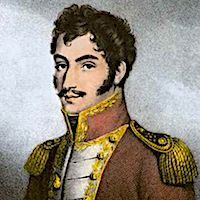
Simon Bolivar Simón Bolívar
1783 – 1830 CE
El Libertador
Major image in Latin American identity, military strategy genius, and liberator from Spanish rule of Venezuela, Bolivia, Colombia, Ecuador, Peru, and Panama; Simón Bolívar became the major hero in the 19th century South American independence movements. Inspired by the idealism of the American and French Revolutions, he fought against factions, created foundations for democracy in Latin America, envisioned and worked toward a kind of United States of South America. These efforts however mainly failed, countries devolved into dictatorships, and Bolivar was almost assassinated. He described these attempts at union a failure and only “plowing the sea.” On the other hand, his legacy remains strong with major monuments to him in the capital cities of Lima, Buenos Aires, Havana, México City, Panama City, Paramaribo, San José, Santo Domingo, Sucre, Algiers, Ankara, Bucharest, London, Minsk, Moscow, New Delhi, Ottawa, Paris, Prague, Port-au-Prince, Rome, Tehran, Vienna, and Washington DC.
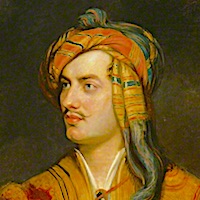
Lord Byron (George Gordon Byron)
1788 – 1824 CE
The first rock-star style celebrity
One of the best English poets, Greek national hero, first modern "rock-star" celebrity, revolutionary, politician, and major Romanticism influence; Lord Byron became renowned for a flamboyant bisexuality during a time when this was highly illegal. A major influence in the Romantic movement and close confidant of Percy Bysshe Shelley, he was known as "mad, bad, and dangerous to know." During his lifetime considered the greatest poet in the world; his fame continues throughout the world in 36 different Byron Societies, in over 40 operas, in his poetry set to music by Beethoven, Schubert, Schumann, Berlioz; and through the legacy of his daughter, a founding force in the first computer programming efforts.
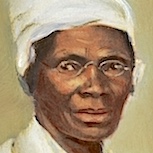
Sojourner Truth (Isabella (“Bell”) Baumfree)
1797 – 1883 CE
Born into slavery and now listed in the “100 Most Significant Americans of All Time,” Sojourner escaped with her infant daughter, went to court trying to get her son back and became the first black woman to win a case like this. She traveled extensively promoting the abolition of slavery, helped recruit black troops during the Civil War and tried to get land grants for freed slaves after the war. A powerful women's rights activist and friend of Susan B. Anthony, she gave one of the most famous speeches on women's rights and is considered a saint by both the Episcopal and Lutheran churches.
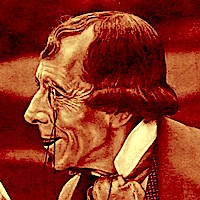
Disraeli, Benjamin (Earl of Beaconsfield )
1804 – 1881 CE
Political balance between mob rule and tyranny
Highly accomplished two-time UK Prime Minister (and only one ever born Jewish), active novelist, poet, close friend of Queen Victoria, and one of the most influential European statesman; Disraeli led a complex and difficult to categorize life. Many saw him as an eloquent charlatan; many as a strong, capable, and patriotic leader. Countering the status quo attitude toward Jews as being inferior, he redefined Judaism as race rather than religion and described Jews as superior in talent and influence. This ironically, may have led to the later fear and resentment toward Jews that culminated in programs and concentration camps. A founder of the modern Conservative party, he brought an isolationist Britain into collaboration with Europe. After the failed Indian Mutiny of 1857 (caused by pig and cow greased bullets) and the annexation of India to Britain, he proclaimed Queen Victoria “Empress of India.” Although he promoted a kind of paternalistic monarchy and imperialism, his voice remains relevant in the ever-challenging balance between overly democratic mob rule on one side and autocratic tyranny on the other.
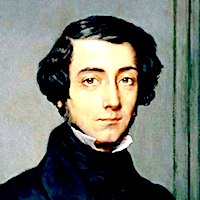
Alexis de Tocqueville
1805 – 1859 CE
Pioneering researcher into the conflicts between freedom and equality
French diplomat, historian, political scientist, and one of the founding theorists of sociology; de Tocqueville analyzed social conditions, living standards and the relationship of the individual to the state. Active in politics and strong proponent of political freedom, he traveled through the United States in an effort that produced one of the most influential books of the time—Democracy in America—as well as helping Europe transition from an aristocratic to a more democratic political order. Although the rallying cry of the revolutions he supported was “Freedom and Equality”, he described the conflict between the two and the need for balance. Pointing out the potential of a tyranny of the minority, the dangers of individualism, materialism, and majority rule leading to mediocrity; he predicted many of the social issues we grapple with today.
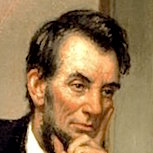
Abraham Lincoln
1809 – 1865 CE
Greatest American president, iconclast, skeptic, self-educated lawyer and congressman opposed to the Mexican–American War whose opposition to the expansion of slavery caused 7 slave states to form the Confederacy when he was elected president; Lincoln skillfully maneuvered between “War and Anti-War Democrats” who wanted to compromise with the South, “Radical Republicans” who wanted to harshly punish the South, fixated secessionists, and British interventionists. His oratory and common sense helped guide the USA through its biggest political and moral crisis while abolishing slavery, preserving the Union, and modernizing the economy. Using the army to protect escaped slaves, he closely supervised the war and planned a compassionate rebuilding of the South until his assassination.
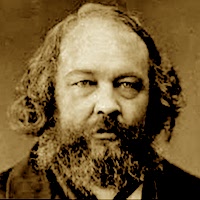
Mikhail Bakunin
1814 – 1876 CE
Romantic rebel, revolutionary anarchist, founding father of modern socialism
Revolutionary anarchist, famous ideologue, and founder of collective anarchism; Bakunin promoted anti-authoritarian Socialism which put him at bitter odds with Marx and his followers who wanted to establish authoritarian people's states. This philosophical disagreement grew into a bitter hatred, a slander campaign by Marx, Bakunin's exile and 12-year imprisonment. When his warnings about Marxist states becoming one-party dictatorships proved prophetic, his influence regained credence and his influence spread into modern times through thinkers like Noam Chomsky, Kropotkin, Herbert Marcuse, Neil Postman, and A.S. Neill becoming—in many ways—more influential than Ma
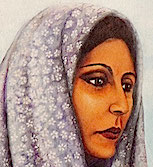
Táhirih طاهره (Fatimah Baraghani, "The Pure One")
1814 – 1852 CE
A genius-deep and curious mind living in a culture and with a husband who didn’t think women should read, be seen, or think for themselves; beautiful, educated, and from one of the most prominent families of her time, Tahirih is said to be the first woman to unveil and question Islamic political and religious orthodoxy which led to her imprisonment and execution. She rose above immense obstacles and became a famous poet, philosopher, and religious leader inspiring and organizing women to reject their oppression. “The first woman suffrage martyr,” her poems are still popular and her influence on Bábí, Bahá’í, and women’s rights are immense and continuing to this day.
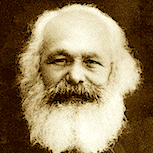
Karl Marx
1818 – 1883 CE
A journalist, philosopher, scientist, and “true founder of modern sociology” and social science; both critics and followers rate Marx as one of the most influential people in all history with a profound impact on world politics, intellectual thought, sociology and economics. A philosopher for the poor and middle classes, he described the economic conflicts of interest that alienate and polarize society between the working classes and the plutocracy. Distorted, corrupted and used by Lenin, Trotsky, Mao, and many other totalitarians; appreciated, developed, and applied by progressive political parties, labour unions, intellectuals, and artists; he brought the scientific method into politics and social theory as well as a powerful alternative to the dehumanizing aspects of capitalistic industrialization. Though questionable in many ways, his work produced a practical and powerful balancing of economic extremes, the exploitation of labor, and the corruption of politicians by the rich. Though more known for his critiques of capitalism, he also appreciated its positive impact on increased productivity, technological progress, and scientific breakthroughs.
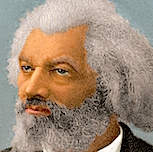
Frederick Douglass
1818 – 1895 CE
International symbol of social justice
Escaped slave, most influential 19th century black leader, adviser to Abraham Lincoln, champion of the working class, author, orator, and newspaper editor; Douglass eloquently agitated for the abolition of slavery, racism and capital punishment; for women’s rights, free public education, and land reform. Calling racism a “diseased imagination,” he convinced Lincoln to let blacks fight in the Civil War and helped enlist troops. Internationally famous, author of an American classic autobiography, a father of liberation theology, and the first African American in many political positions; his memory symbolizes and inspires the spirit of people everywhere to resist oppression and work for social justice.
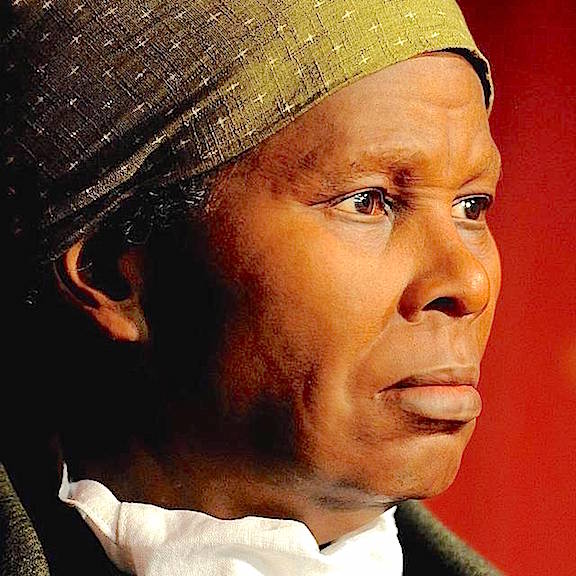
Harriet Tubman (Araminta Ross)
1822 – 1913 CE
Beaten, whipped, and escaped slave; US armed army spy, nurse and scout during the Civil War; and soon to replace on the $20 bill slave-owning Andrew Jackson who illegally broke treaties with native Americans and refused to support Supreme Court rulings in their favor; Tubman was the first woman to lead an armed war campaign (that freed 700+ slaves), used the Underground Railroad to secretly rescue over 70 slave families, found work for the newly freed slaves, and became an important part of the women's suffrage movement. A devout Christian considered by many a saint, although living in constant poverty, she never stopped her humanitarian work and is now a shining symbol for courage and freedom.
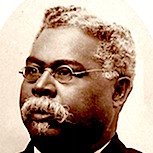
Robert Smalls
1839 – 1915 CE
In a dramatic escape from slavery, Smalls commandeered a Confederate steamer during the Civil War, disguised himself in the captain’s coat, picked up the families of his fellow slave sailors, and made a mad dash for a Union blockade where they were welcomed as heroes. He later helped recruit over 5000 blacks to help in the North’s war effort, served as a captain in the US Navy. After the war he returned to South Carolina, bought his former master’s house, served in the US House of Representatives, founded the Republican Party of South Carolina, and authored the state legislation that gave his state the first US free and compulsory public school system.
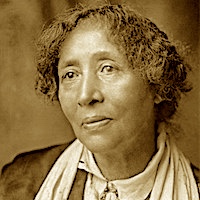
Lucy Parsons (Eldine Gonzalez)
1853 – 1942 CE
Political activist “more dangerous than a thousand rioters”
Born a slave to Native-American/African-American/Mexican-American parents; Lucy became a powerful orator, American radical activist, founder of the Industrial Workers of the World, and labor union organizer. She married a newspaper editor and former Confederate soldier—Albert Parsons—but had to quickly leave Texas because of interracial prejudice. In Chicago they became involved in the labor movement and helped organize a peaceful rally striking for an eight-hour day. An unknown person threw dynamite at police but several organizers including Albert were blamed and executed. This became a galvanizing event on the entire world’s labor movements as well as inspiring Lucy and an active life into her 80’s described by police as, “more dangerous than a thousand rioters.”
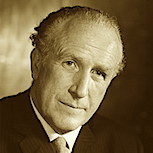
Arthur Desmond
1859 – 1929 CE
Arthur Desmond (c. 1859 – 1929), aka Arthur Uing, Ragnar Redbeard, Richard Thurland, Desmond Dilg, Gavin Gowrie
Bank-bashing heroic reformer, “The Poet of Revolution,” author, and politician; Desmond started a political organization dedicated to “emancipation from poverty, competitive commercialism, industrial wage slavery, tyrannical authority, and mental bondage." Like Machiavelli and his satirical book The Prince, Desmond was slandered by the rich and powerful plutocrats of his time as an immoral, satanic figure, advocating Social Darwinism, racism, and fascism. His book, Might Is Right, however, was called by fellow labor movement collaborators, “one of the greatest books ever written." He promoted land reform, the nationalization of large estates and banks, single taxation and called bank directors "scoundrels", large estate owners "blood-sucking leeches" and the local press as "hirelings of monopoly.”
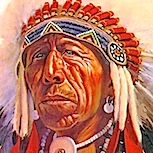
Black Elk (Heȟáka Sápa)
1863 – 1950 CE
Holy Sioux Medicine Man, Heyoka (sacred clown), wounded warrior, seer of wisdom-visions; Black Elk was spiritual but pragmatic - he became Catholic because “My children had to live in this world,” but later told his daughter, “The only thing I really believe is the pipe religion.” He went to England with Buffalo Bill's Wild West show in 1887, got lost, and traveled through Germany, France, and Italy where he saw that “The Holy Land is everywhere,” and returned with insight that inspired both the American Indian Movement and some of the best elements within European-American culture: civil rights, organic farming, renewable energy, sustainable living, and the environmental movement.
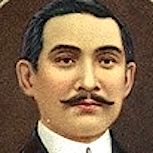
Sun Yat-sen 孙逸仙
1866 – 1925 CE
The Republic of China’s founding father and first president, physician, revolutionary, co-founder of the Kuomintang, and uniquely admired by both Taiwan and Mainland China; Sun Yat-sen grew up in Hawaii and after returning to China endured many exiles and almost constant political struggle. He championed the “Rule of Right over the Rule of Might” and dedicated his life to furthering democracy in China, free trade, tax reform, poverty alleviation, independence from foreign influence, and ethnic equality. He set up the first Chinese Central bank and the foundations for Chinese capitalism.
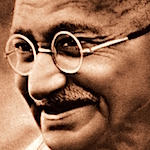
Mahatma Gandhi
1869 – 1948 CE
Mahatma Gandhi (1869–1948)
Leader of India’s independence movement, non-violent civil disobedience advocate, major inspiration for Martin Luther King Jr. and Nelson Mandela; Gandhi followed in his Jain tradition of fasting, meditation and vegetarianism. After an arranged marriage at 13, he studied law in England but was so introverted and shy, he froze during his first cross-examination and couldn’t say anything. Not being able to find work in India, he moved to South Africa where in a Rosa-Parks type moment was thrown off a train for refusing to move to the back. This led to his lifetime passion for fighting prejudice, discrimination, and injustice – political change in S. Africa, Indian independence, and many attempts to establish peace between Hindus and Muslims.
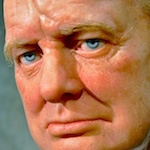
Winston Churchill
1874 – 1965 CE
At the top of world politics for 50 years and one of the most influential leaders in all history, Churchill was also an accomplished artist, an author who won the Nobel Prize in Literature, and amateur bricklayer who bred butterflies. A Cassandra of his time, he very early and almost alone warned of Hitler and Nazi Germany, Stalin and the Soviet threat, and Gandhi’s approach to Indian Independence leading to the Islamic consequences we’re suffering today. Overcoming a serious speech impediment, his radio broadcasts and communications held Britain together when they were standing almost alone against Hitler, helped bring vital US support, and win WW II.
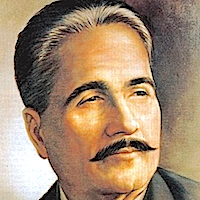
Muhammad Iqbal محمد اقبال
1877 – 1938 CE
Muhammad Iqbal محمد اقبال (1877 – 1938)
"Spiritual father of Pakistan,” politician, "Poet of the East,” scholar, ‘Sage of the Ummah,”and one of the most important figures in all of Urdu literature; Muhammad Iqbal was knighted by King George and praised by US Supreme Court Associate Justice William O. Douglas though also condemned by Western leaders because of his anti-capitalist views. In 1930 he proposed the creation of a Muslim state in Northwest India, and is now considered the ideological founder of Pakistan as well as a main inspiration for the Iranian Revolution. Fighting hard against racial, religious, national social and all forms of oppression, inequality, and discrimination; he promoted democracy, humanism, peace and friendship.
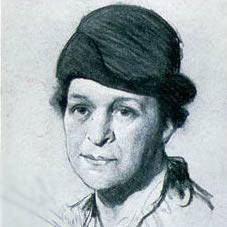
Frances Perkins
1880 – 1965 CE
One of the most influential champions for worker's rights
First woman cabinet member, close friend of FDR, and fierce advocate for worker's rights; Perkins helped create unemployment insurance, social security, the minimum wage, the Civilian Conservation Corps, and laws to regulate child labor. The longest serving Secretary of Labor (1933-1945), she became essential in establishing and enacting the New Deal as well as the Immigration and Naturalization Service. During the challenging times during World War II, she mediated strikes, balance labor vs. war needs, and helped the transition of women moving into traditionally male-only jobs. Her skill and influence were profound but without much charisma she mainly stayed in the background without much public attention. Her honors include the National Women's Hall of Fame, the Labor Hall of Fame, the 31 Icons of a LGBT History Month, and the 2019 Government Hall of Fame. Senator Elizabeth Warren uses a podium built from wood recycled from her homestead.

Franklin Roosevelt (FDR)
1882 – 1945 CE
Champion and creator of a more just and equitable society
32nd president of the United States, winner of a record 4 terms, widely considered one of the 3 greatest presidents and one of the of the 20th century's most influential politicians, and champion of the New Deal; Roosevelt met and successfully responded to some of the USA's most challenging problems including the Great Depression, Prohibition, and World War II. He helped establish the United Nations, Social Security, a minimum wage, and made child labor illegal. Like all of us though—in particular politicians—he has a shadow/dark side which manifested in the incarceration of Japanese-Americans during WWII, a subtle support for white supremacy, and a tremendous expansion of presidential powers.
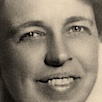
Eleanor Roosevelt
1884 – 1962 CE
Longest-serving First Lady in the history of the United States, Eleanor was mentor and guiding influence behind her powerful and famous husband, blending his charisma with her wisdom. Though a terrified introvert, she was the first First Lady to be on talk radio, address a national convention, hold a press conference, write a newspaper column and averaged 150 lectures a year throughout the 50’s. She championed civil rights, women’s rights, helped write the Universal Declaration of Human Rights and became chairperson of the UN Commission on Human Rights. Called the “First Lady of the World” by Harry Truman, she received thirty-five honorary degrees and two of her speeches are on the Top 100 Speeches of the 20th Century.
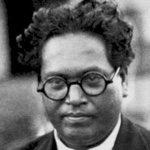
B.R. Ambedkar (Babasaheb)
1891 – 1956 CE
While Gandhi unjustly holds international fame and respect; Ambedkar remains almost unknown outside India. Unlike Gandhi who supported the caste system and held deeply racist and anti-feminine views, Ambedkar campaigned for the Dalts (Untouchables), the rights of women, and labor. Independent India's first law minister, main writer of the first Constitution, and considered by many a true Bodhisattva, he criticized Hinduism as being the foundation of the caste system and began a Buddhist revival. When he formally became a Buddhist in 1956, 500,000 at once followed in his footsteps. In 2012 almost 20 million people voted him the “Greatest Indian.”
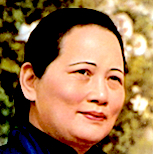
Soong Ching-ling (Madame Sun Yat-sen)
1893 – 1981 CE
The "mother of modern China,” wife of Sun Yat-sen, a Vice President of China and Honorary President of the People's Republic of China; Soong Ching-ling makes up an important part of one of history’s most famous and influential sets of sisters. Daughters of an American-educated Methodist minister/banker, one sister - a power in herself - married the leader of the Kuomintang, Chiang Kai-shek; another married the Chinese finance minister and because the richest woman in China. Soong Ching-ling stayed in mainland China and held important government positions but was persecuted during the Cultural Revolution.
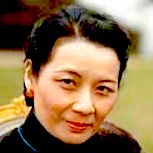
Soong Mei-ling 宋美龄 (Madame Chiang Kai-shek)
1897 – 2003 CE
Called by Life Magazine the "most powerful woman in the world,” by Ernest Hemingway the “empress” of China, and compared by Clare Boothe Luce to Florence Nightingale and Joan of Arc; Soong Mei-ling lived during 3 different centuries, was the Republic of China’s first First Lady, Sun Yat-sen’s sister-in-law, wife and political partner to Chiang Kai-shek. She worked hard fighting against the Japanese invasion of China, toured the USA trying to get support, and started extensive welfare projects and schools for orphans, and worked on many attempts to heal China’s political divisions.
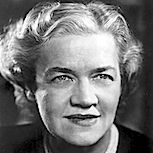
Margaret Chase Smith
1897 – 1995 CE
Called by Khrushchev "the devil in disguise of a woman,” Chase was the first woman to serve in both houses of the US Congress, as chair of the Senate Republican Conference, and the first to be placed in nomination for the presidency. Though an independent Republican, she deeply respected John Kennedy, voted against Nixon proposals, and led the opposition against demagogue Joe McCarthy. She strongly supported civil rights, Medicare, increased educational funding, and the NASA administrator said without here they wouldn’t have been able to land a man on the Moon.
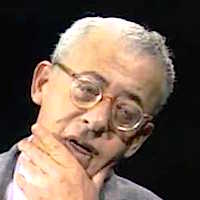
Saul Alinsky
1909 – 1972 CE
Saul Alinsky (1909 – 1972)
“Founder of modern community organizing,” “creator of a backyard revolution in cities across America,” champion of the poor and powerless; Alinsky became a strong influence on Cesar Chavez, Hillary Clinton, Barack Obama and Dolores Huerta but his methods and strategies were also studied and used by Tea Party organizers. Dedicating his own work to improving the living conditions in poor communities, he was active in the labor movement, poverty alleviation across the USA, in black ghettos, and California barrios. Reviled and banned by establishment politicians but admired and imitated by counterculture-era organizers; he was described by William F. Buckley Jr. as an “organizational genius,” by Adlai Stevenson as “a most faithfully reflect[ion] our ideals of brotherhood, tolerance, charity and dignity of the individual,” and according to Time magazine he “altered democracy.”
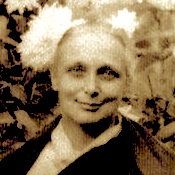
Freda Bedi, Sister Palmo
1911 – 1977 CE
Freda Bedi, Sister Palmo (1911 – 1977)
First Western woman to become a Tibetan Buddhist nun and married to a Sikh from Guru Nanak’s clan; Freda Bedi spoke before hundreds of thousands of people helping Gandhi and his national independence movement, was arrested and and spent months in prison held along with her children. People came to her by the thousands just for her blessing and she later worked for the United Nations Social Services, the Ministry of External Affairs, and the Tibetan Refugees Commission. Nehru asked her to be in charge of the Social Welfare Board in 1959 when the Dalai Lama and thousands of Tibetans arrived in India and she began studying with the 16th Karmapa. She helped establish the Young Lamas Home School and asked Chogyam Trungpa to train and become spiritual advisor to young monks there.
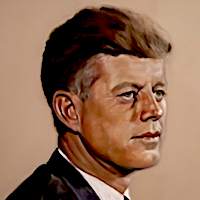
John Kennedy
1917 – 1963 CE
Modern America's most popular president
Journalist, politician, and one of the most respected US presidents of all time; Kennedy inspired a generation and holds the highest presidential average approval rating of 70%—the highest of any president in Gallup's entire history of measuring job approval. He is the only Roman Catholic ever elected president, the youngest person to be elected president, and the second-youngest to serve as president. His book Profiles in Courage, written during his years in the Senate, won a Pulitzer Prize. He established the Peace Corps, supported the civil rights movement, proposed the Civil Rights and the Revenue Acts that were passed after his assassination. He approved the failed Bay of Pigs Invasion but rejected Operation Northwoods, a Joint Chiefs plan to fabricate a false attack to get public support for a war against Cuba as well as successfully navigating the Cuban Missile Crisis. He increased the US presence in Vietnam but—according to Defense Secretary McNama—was strongly considering pulling the US completely out: a position his successor, Lyndon Johnson strongly disagreed with. He began a program called the "New Frontier" to provide federal funding for education, free elderly medical care, aid for poor rural areas, and the ending of racial discrimination; but, these efforts were cut short when he was killed by Lee Harvey Oswald.
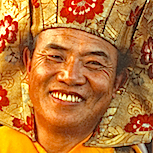
Karmapa XVI ཀརྨ་བཀའ་བརྒྱུད། (Rangjung Rigpe Dorje)
1924 – 1981 CE
“Karmapa” means “Activity of All Buddhas” and the Karmapas were both leaders of the Kagyu tradition and traditional teachers to the Chinese Ming Dynasty Emperors. In this life, it meant leading his people in their escape from Tibet into India, across Asia, and into the West. A teacher to the royal families of Sikkim and Bhutan, his rigorous training began when he was 7 years old and though a religious leader not focused on politics, he helped th Dalai Lama during trips to China and unsuccessful negotiations with Mao and the Chinese government. He continued the Black Crown ceremonies begun by the 5th Karmapa and the Chinese Emperor Yung Lo and in the early 1970’s predicted the Chinese invasion as well as the Western world’s openness and acceptance of Buddhism.
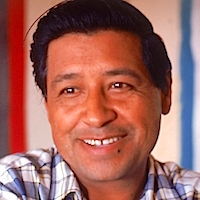
César Chavez César Estrada Chávez (César Estrada Chávez)
1927 – 1993 CE
Iconic "folk saint,” Mexican-American farm laborer, civil rights activist, grass roots organizer, co-founder of the the United Farm Workers union; Cesar Chavez used nonviolent but spirited methods to further the rights and living standards of farm workers. Nominated 3 times for the Nobel Peace Prize, given the Presidential Medal of Freedom, and inducted into the California Hall of Fame; he promoted and practiced non-violence, vegetarianism, and Hispanic empowerment helping to establish collective bargaining for farmworkers.
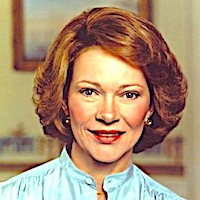
Rosalynn Carter
1927 – 1923 CE
Insightful and compassionate politician
Oldest living First Lady, author of 5 books, strong supporter of equal rights, and active member of the Carter administration; Rosalynn Carter disdained the role of traditional First Lady and was criticized by members of her own party who believed “women are meant to be kept at home and that's all." Instead, she broke the molds confining presidents’ wives to being only official hostesses. For only the second time in history for a First Lady, she appeared before Congress to testify, in this case for a new Mental Health System bill. A strong voice against Ronald Regan who she believed was ruining the country, she promoted peace in Israel, human rights in Brazil, help for refugees from Pol Pot, and Habitat for Humanity. Not afraid to disagree with her husband on policy issues, she actively disagreed and argued with him during his time as president and up to recent times disagreeing with him about Russian interference in the 2016 election.
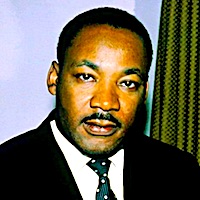
Martin Luther King Jr.
1929 – 1968 CE
Leading world influence for equality, peace, non-violence, and poverty alleviation
(1929–1968)
Baptist minister, one the the 20th century’s most admired people, “the conscience of his generation,” most famous civil rights leader, and known for one of history’s most influential speeches; Martin Luther King became one of the world’s most effective forces for equality, peace, and poverty alleviation. An enemy of J. Edgar Hoover, investigated by the FBI, and assassinated; his life proved the power and unstoppability of a good and pure heart. Practicing Gandhian nonviolence and Thoreauvian civil disobedience, he won the Nobel Peace Prize, the Presidential Medal of Freedom, the Congressional Gold Medal, 50 honorary university degrees; and today, a national holiday and hundreds of US streets are named in his honor.
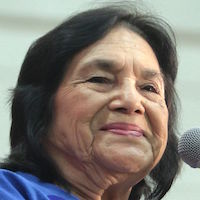
Dolores Huerta
1930 CE –
Champion for workers', immigrants', and women's rights; labor leader and civil rights activist; co-founder of an organization that became the United Farm Workers (UFW); Huerta was the first Latina inducted into the Women's Hall of Fame and received both the Eleanor Roosevelt Award for Human Rights and the Presidential Medal of Freedom. In 1988 her severe beating (necessitating spleen removal in emergency surgery) by police during a peaceful protest was caught on videotape and resulted in change SFPD crowd control policies and a huge settlement that she used to benefit farm workers.A frequent subject for murals, ballads, and the names of schools; she was on stage with Robert Kennedy just before his assassination, in 2008 formally placed Hillary Clinton's name into nomination, and was honorary co-chair of the 2017 Women's March on Washington. Though almost 90, she continues to work through her foundation on health, environment, education, and economic development. (picture at age 86)

Oren Lyons
1930 CE –
Seneca and Iroquois Nations Council of Chiefs Faithkeeper, legendary athlete inducted into the Lacrosse Hall of Fame, artist, author, and international peace keeper; Oren Lyons’ life work expanded from promoting his own tribes’ welfare to indigenous lifeways and Native American Rights in general to human rights and economic development for indigenous people all over the world including working for Maori rights in New Zealand, yearly meetings in Geneva for the UN Human Rights Commission, and UNESCO’s World Conference Against Racism. A strong voice for the environment, sustainable development, a more sane world, and for the sacred over materialism; he represents native peoples in many forums throughout the world.
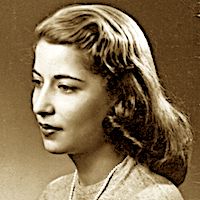
Ruth Bader Ginsburg
1933 – 2020 CE
Fierce and influential voice for justice, equality, and women's rights
Second female Supreme Court Justice, professor, "pop culture icon,” champion of gender equality and women's rights; Ginsburg became a fierce and influential voice on the direction of US law. The first Justice to officiate a same sex-wedding, her work led to ending gender discrimination in many areas and extended the Constitution’s Equal Protection Clause to women. Without neglecting her Supreme Court work, she’s struggled through the death of a husband, heart surgery, colon. and pancreatic cancer. To stay healthy and continue her work, she found a personal trainer, started working out, and at 80 could still do 20 full push-ups. Named one of the world’s 100 Most Powerful Women in 2009, “Women of the Year” in 2012, and one of Time’s “100 most influential people” in 2015; her influence continues.
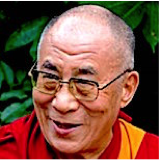
Dalai Lama XIV Tenzin Gyatso
1935 CE –
Born to a remote small farming family on a straw mat in a cowshed, the Dalai Lama became the world’s most popular political leader. He received the Nobel Peace Prize, the highest US honor of Congressional Gold Medal, the Freedom Medal, and is one of only 6 people given Honorary Citizenship by the Canadian government. Traveling the world for decades, he became the most famous voice for the environment, women's rights, non-violence, fair economics, and interfaith dialogue as well as the world’s main influence for the preservation of Tibetan culture. Promoting a Buddhist approach to science, economics, and politics; he has traveled to more than 67 countries and written more than 110 books.
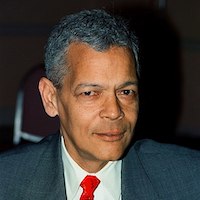
Julian Bond
1940 – 2015 CE
Courageous civil rights leader
Social activist, professor, politician, and leader of the civil rights movement, Julian Bond helped create SNCC (Student Nonviolent Coordinating Committee), the Southern Poverty Law Center, and became a 12-year chairman of the NAACP. He served 20 years in the Georgia legislature and 22 years as a University of Virginia professor. A strong and effective supporter of civil, women's, and gay rights, he received the National Freedom Award, the National Leadership Award, the Spingarn Medal, and 25 honorary degrees.
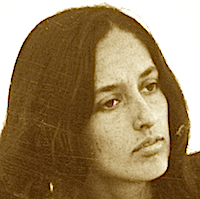
Joan Baez
1941 CE –
Famous but down-to-earth, proud but self-deprecating, a powerful speaker of truth to power; Joan Baez helped launch the civil rights and anti-war movements, social justice on multiple fronts including nonviolence, the environment, and human rights in general. A leader of the dynamic, counterculture social and political change of the sixties, she influenced the direction of American politics and world culture. For 60+ years, recording 30+ albums and songs in 8+ languages; her message of peace, compassion, and justice spread throughout the world both through her own direct example and through her relationship-with impact on people like Bob Dylan, David Harris, and Steve Jobs.
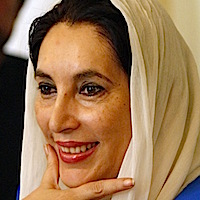
Benazir Bhutto بينظير ڀُٽو;
1953 – 2007 CE
“Iron Lady,” 11th Prime Minister of Pakistan, first woman to head a Muslim majority nation; Benazir Bhutto studied at Harvard in the USA and Oxford in the UK, became a symbol of women's empowerment in Islamic countries as well as a small but bright light shining on the possibility of peace between Islam and the West, democracy in Muslim countries, and the ending of Islamic extremism. Assassinated but now honored by the Pakistani government, her legacy includes almost all Pakistani political parties allowing women full participation in their organizations and elections, support programs for the poorest Pakistanis, and inspiration for young activists like Malala Yousafzai.
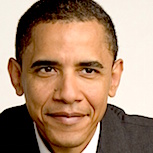
Barack Obama
1961 CE –
Winner of honors ranging from the Grammy Awards to the Nobel Peace Prize; Obama is the first African American US President, the first sitting president to visit Hiroshima, and first to address the African Union. In spite of single-minded and almost exclusive focus on opposing him by House and Senate Republicans, his accomplishments rival almost any American president. Beginning with one of the most dire financial crises in US history; he turned the economy around, greatly improved foreign relations, passed the Affordable Care Act, killed Osama bin Laden, reigned in Wall Street, restored relations with Cuba and made progress on fighting climate change, prejudice, workplace abuse, and gun control.
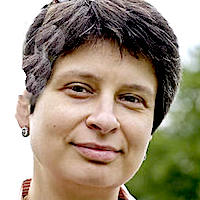
Nina Lvovna Khrushcheva Нина Львовна Хрущёва
1964 CE –
The adopted granddaughter of Nikita Khrushchev and daughter of his biological granddaughter, Nina grew up in the midst of an intense political environment witnessing the rise and fall of Soviet Russia. She saw first hand how Khrushchev was vilified in both Russia and the USA while repudiating Stalin’s legacy of terror and totalitarianism which killed between 30 and 60 million people, releasing millions of Stalin’s victims from gulags, and spearheading reforms that allowed greater political, personal, and artistic freedoms. Now an American Professor of International Affairs, Senior Fellow of the World Policy Institute, and a Contributing Editor to Project Syndicate; she shares her insightful political commentaries in Newsweek, The New York Times, The Wall Street Journal, The Financial Times and in many other publications and boo
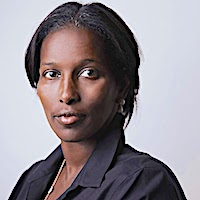
Ayaan Hirsi Ali
1969 CE –
Powerful voice for Islamic reform
Politician, scholar, powerful and effective voice advocating Islamic reform and the rights of Muslim women; Ayaan Hirsi Ali skillfully opposes the far-too-common practices of forced and child marriage, genital mutilation, and violence against women. After growing up as a devout Muslim, she abandoned her faith and became an insightful critic of Islam and the fundamentalist Islamic laws that oppress women. Her movie Submission precipitated an intense reaction of criticism, death threats, and the murder of her co-filmmaker. Both exemplifying and calling for an Islamic Enlightenment, she exposes the deep and debilitating oppression ingrained in Muslim culture and religion as well as articulating and demonstrating a path toward positive reform.
Related Sources (3 sources)
Discourses on Livy by Machiavelli
Doctrine of the Mean, Maintaining Perfect Balance, Zhongyong 中庸 by Zisi
Quotes about the Politicians Lineage (13 quotes)
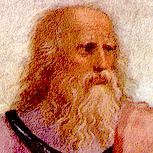
“Until philosophers are kings, or the kings and princes of the world have the spirit and power of philosophy, the human race will never see an end of trouble. Only when political greatness and wisdom meet will cities and nations rest from their evils and see the light of day.”
Comments: Click to comment
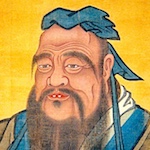
“Correct what is wrong in the prince's mind. Once that's done, the kingdom will be settled.”
Comments: Click to comment
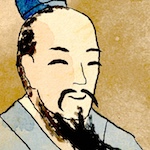
“Those who govern and follow the Tao are like the high branches in a tree; people don’t notice them and wander in freedom like deer in a forest. 3:14”
Comments: Click to comment
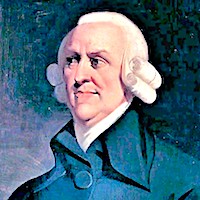
“According to the system of natural liberty, the sovereign has only three duties... first, the duty of protecting the society from violence and invasion; second, the duty of protecting every member of society from every other member of it; third, erecting and maintaining certain public works and institutions... because the profit could never repay the expense to any individual or small number of individuals”
Comments: Click to comment
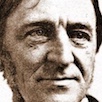
“Politics is a deleterious profession, like some poisonous handicrafts. Men in power have no opinions, but may be had cheap for any opinion, for any purpose.”
Comments: Click to comment
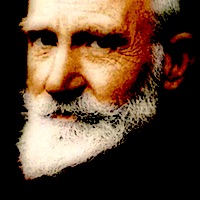
“Power does not corrupt men; fools, however, if they get into a position of power, corrupt power.”
Comments: Click to comment
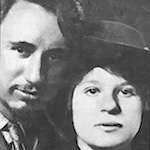
“Few great men have remained, after death, what they had been during their lives... Napoleon had served to embody his country's need for order after a riot of freedom... a dictator almost larger than history... he became after his death... mouthpiece of the recurrent cry for liberty... the most persuasive apostle of freedom.”
Comments: Click to comment

“Can we again conceive philosophy as unified knowledge unifying life? Can we outline a kind of philosophy that might make its lovers capable of ruling first themselves and then a state, men worthy to be philosopher-kings?”
Comments: Click to comment
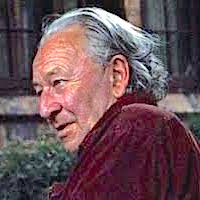
“Perhaps there is no such thing as unilateral power. After all, the man 'in power' depends on receiving information all the time from outside. He responds to that information just as much as he 'causes' things to happen... it is an interaction, and not a lineal situation.”
Comments: Click to comment
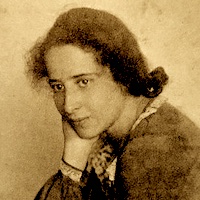
“Political questions are far too serious to be left to the politicians.”
Comments: Click to comment
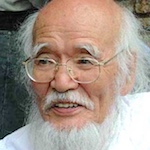
“Look at the dangerous politicians who rush ahead madly along the road to the military-industrial merchants of death while hoisting high the flag of peace. And look at the public which supports this.”
Comments: Click to comment

“It is when the politician loves neither the public good nor himself, or when his love for himself is limited and is satisfied by the trappings of office, that the public interest is badly served.”
Comments: Click to comment

“The Prince—the first ever handbook on opportunism—which advised rulers to 'learn how not to be virtuous' in order to maintain their power.”
Comments: Click to comment
Comments (0)